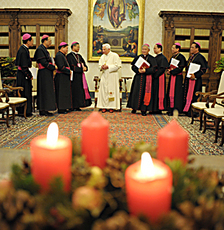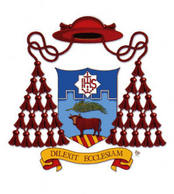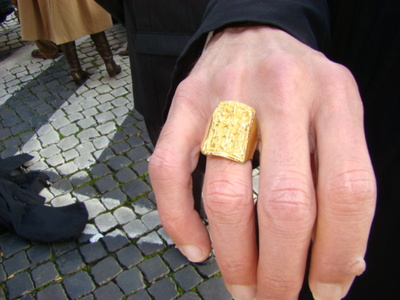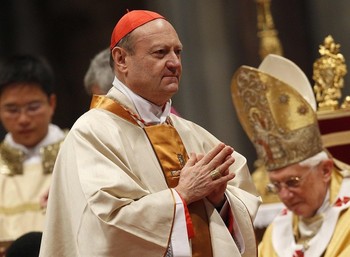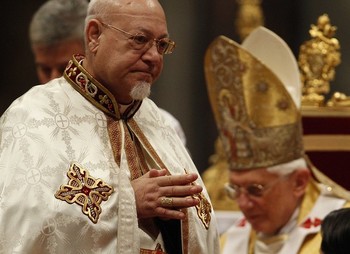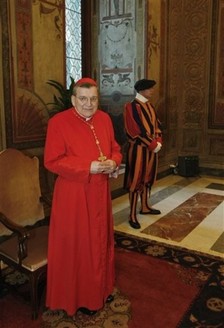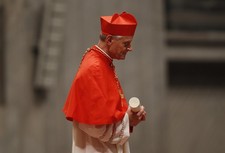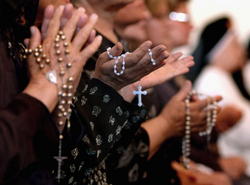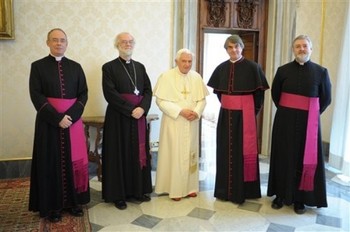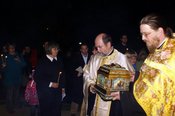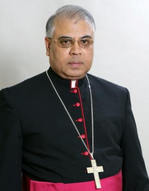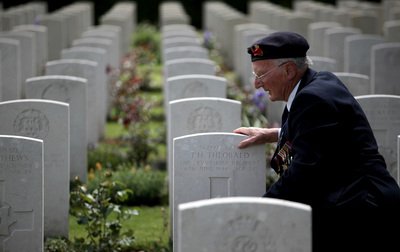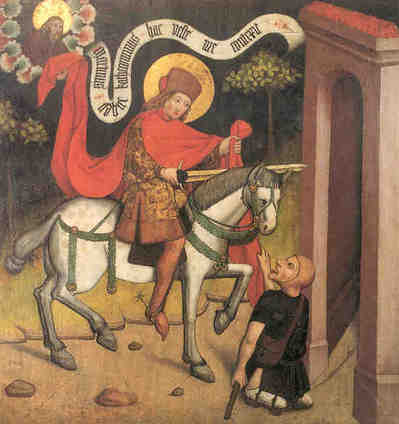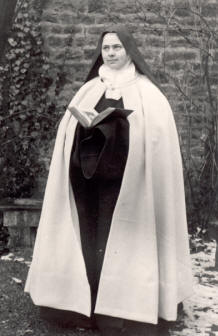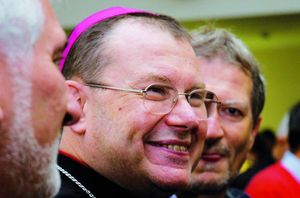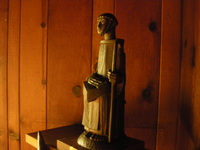 The Abbey of Regina Laudis is a special place in Connecticut; and one of the special Benedictine monasteries in the USA. I've been spending more time there in recent months either attending the Divine Office and/or Mass or spending a few days in St Joseph's Guest House (for men, there are guests for women, married folks, & clergy).
The Abbey of Regina Laudis is a special place in Connecticut; and one of the special Benedictine monasteries in the USA. I've been spending more time there in recent months either attending the Divine Office and/or Mass or spending a few days in St Joseph's Guest House (for men, there are guests for women, married folks, & clergy).Paul Zalonski: November 2010 Archives
 The Abbey of Regina Laudis is a special place in Connecticut; and one of the special Benedictine monasteries in the USA. I've been spending more time there in recent months either attending the Divine Office and/or Mass or spending a few days in St Joseph's Guest House (for men, there are guests for women, married folks, & clergy).
The Abbey of Regina Laudis is a special place in Connecticut; and one of the special Benedictine monasteries in the USA. I've been spending more time there in recent months either attending the Divine Office and/or Mass or spending a few days in St Joseph's Guest House (for men, there are guests for women, married folks, & clergy).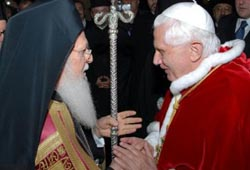 Saint Andrew is the first of the 12 Apostles called by Jesus to follow Him. Today is his feast day, the day traditionally remembered as the day of his death.
Saint Andrew is the first of the 12 Apostles called by Jesus to follow Him. Today is his feast day, the day traditionally remembered as the day of his death.
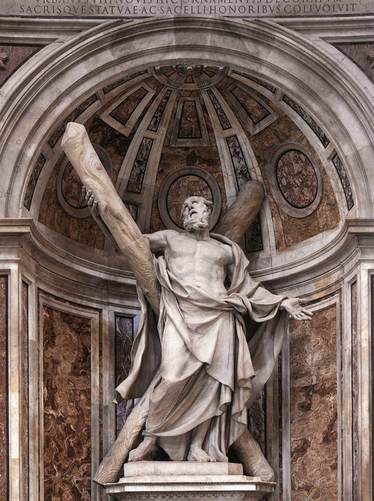
Today is the first time the Jesuits and Spain celebrate the liturgical memorial of the new beatus, Blessed Bernard Francis de Hoyos. When Blessed Bernard was lifted to the altars in April, I posted on him, and here. For me, he's an attractive contemporary apostle of the Sacred Heart Jesus. The second reading for the Office of Readings of the Divine Office follows:
From the Instruction of Blessed Bernard Francis de Hoyos to Brother Ignatius Osorio
(Vallalodid, 14 September 1732, nn. 40-41; MS 1596, University Library of Salamanca.)
A divine and heavenly peace in your heart
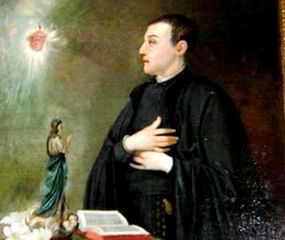
Try to have, my beloved brother, a divine and heavenly peace in your heart. I do not speak of peace with others, called by another name, charity; for that I repeat (the words) of the Apostle to the Thessalonians: Now concerning love of the brothers, you do not need to have anyone write to you, for your yourselves have been taught by God to love one another (1 Thessalonians 4:9). I speak of peace within one's own heart, which often is the greater struggle for us, arousing in the soul a thousand disturbances, anguishes, and disquiet with which the demon succeeds in his aim of thwarting us in the way of perfection. The distinguishing characteristic of the friends of God consists in this interior peace, which Christ so often recommended to his disciples, repeating: Peace be with you (Luke 10:5; 24:36) for he is called "Prince of Peace" (Isaiah 9:6). Disturbance, on the contrary, is characteristic of reprobates: There is no peace for the wicked. (Isaiah 48:22). Jesus cannot abide where there is no peace. The soul is a mirror; it is a crystal-clear steam which reflects all the beauties placed before it; in which the image of our God is reflected: into the same image we are being transformed (2 Corinthians 3:18), so long as the waters of this stream are nit disturbed or agitated, so long as the clarity of this mirror is not dimmed or obscured.
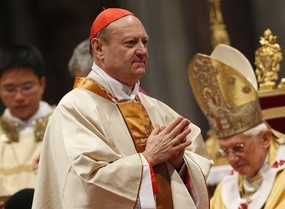 A week ago today, Archbishop Gianfranco Ravasi, 68, was created a cardinal by Pope Benedict XVI. Ravasi, since 2007, is the well-equipped, critically acclaimed, lover of art and music, and a man who has a great sense of humor President of the Pontifical Council for Culture, the "Minister of Culture" (some might say he's a "culture vulture") and he heads the Pontifical Commission for the Cultural Heritage of the Church, and the Pontifical Commission for Sacred Archeology. He's the former head of the Ambrosian Library in Milan. He turned the Library into a cultural and intellectual destination.
A week ago today, Archbishop Gianfranco Ravasi, 68, was created a cardinal by Pope Benedict XVI. Ravasi, since 2007, is the well-equipped, critically acclaimed, lover of art and music, and a man who has a great sense of humor President of the Pontifical Council for Culture, the "Minister of Culture" (some might say he's a "culture vulture") and he heads the Pontifical Commission for the Cultural Heritage of the Church, and the Pontifical Commission for Sacred Archeology. He's the former head of the Ambrosian Library in Milan. He turned the Library into a cultural and intellectual destination.
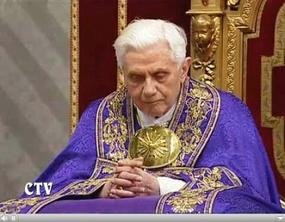
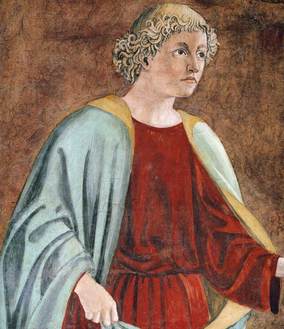
The new liturgical year begins tonight at First Vespers for Advent (as a point of comparison, the Church in Milan which follows its own liturgical calendar and set of customs began Advent on November 14th). A new liturgical year refreshes our understanding of good Catholic customs and practices, a renews the emphasis of ongoing conversion and encourages a lively following of God Incarnate -- all these things are essential hallmarks of Advent.
The newness the Advent gives to us is seen as a feast for the senses (Catholics are sensual people) known through investment of our best resources and energies: the Church's vesture changes to purple, silence is observed a little more in the Liturgy, the sacred Scriptures draws out attention to waiting and preparing the way of the Lord (think of the Prophet Isaiah pictured right), the season's music focuses our hopes and loves on the Kingdom already present but not fully realized and our homes, the "domestic church," reinforces our seeking God together. As Father U. Michael Lang, CO, said in a recent essay on vestments, "Divine beauty manifests itself in an altogether particular way in the sacred liturgy, also through material things of which man, made of soul and body, has need to come to spiritual realities: the buildings of worship, the furnishings, the vestments, the images, the music, the dignity of ceremonies themselves."
As one small sign for the daily and weekly movement of this season of preparation is the Advent wreath, a tangible sign of movement to recognizing more deeply that our Salvation is at hand. The Advent wreath is, however, not a parish church custom as much as it is custom for one's home (but you can't persuade too many priests to move the Advent wreath out of the sanctuary these days).
A favorite historian of liturgical customs is Jesuit Father Francis X. Weiser's 1958 Handbook of Christian Feasts and Customs: The Year of the Lord in Liturgy and Folklore, but I also look to Pius Parsch, Dom Gueranger and the Directory of Popular Piety and the Liturgy (2001) to recall the Advent sensibility given to us by the Church. These authors are particularly helpful in preparing the faithful and especially the children in the Catechesis of the Good Shepherd and other CCD programs about the sacred Liturgy. About the Advent wreath Weiser writes:
The Advent wreath originated a few hundred years ago among the Lutherans of eastern Germany. It probably was suggested by one of the many light symbols which were used in folklore at the end of November and beginning of December... The Christians in medieval times kept many of these lights and fire symbols alive as popular traditions and ancient folklore. In the sixteenth century the custom started of using such lights as a religious symbol of Advent in the houses of the faithful. This practice quickly spread among the Protestants of eastern Germany and was soon accepted by Protestants and Catholics in other parts of the country. Recently it has not only found its way to America, but has been spreading so rapidly that it is already a cherished custom in many homes.
The Advent wreath is exactly what the word implies, a wreath of evergreens (yew or fir or laurel), made in various sizes. It is either suspended from the ceiling or placed on a table, usually in front of the family shrine. Fastened to the wreath are four candles standing upright, at equal distances. These candles represent the four weeks of Advent.
Daily at a certain time (usually in the evening), the family gathers for a short religious exercise. Every Sunday of Advent one more candle is lit, until all four candles shed their cheerful light to announce the approaching birthday of the Lord. All other lights are extinguished in the room, and only the gentle glow of the live candles illuminates the darkness. After some prayers, which are recited for the grace of a good and holy preparation for Christmas, the family sings one of the traditional Advent hymns or a song in honor of Mary.
The traditional symbolism of the Advent wreath reminds the faithful of the Old Testament, when humanity was "sitting in the darkness and in the shadow of death" (Luke 2:79); when the prophets, illumined by God, announced the Redeemer; and when the hearts of men glowed with the desire for the Messiah. The wreath -- an ancient symbol of victory and glory -- symbolizes the "fulfillment of time" in the coming of Christ and the glory of His birth.
In some sections of Europe it is customary for persons with the name of John or Joan to have the first right to light the candles on the Advent wreath and Christmas tree, because John the Evangelist starts his Gospel by calling Christ the "Light of the World" and John the Baptist was the first one to see the light of divinity shining about the Lord at His baptism in the Jordan. (pp. 54-55)
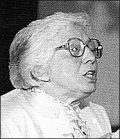 The Christian community of faith in New Haven, Connecticut mourns the loss of Clementina Valentina, 85, Third Order Laity of the Order of Preachers. Our friend and fellow companion has been called home by the Lord.
The Christian community of faith in New Haven, Connecticut mourns the loss of Clementina Valentina, 85, Third Order Laity of the Order of Preachers. Our friend and fellow companion has been called home by the Lord.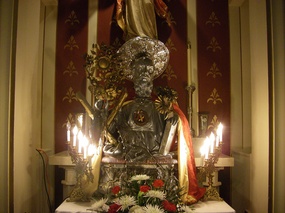 New Haven has many residents whose family hails from Amalfi, Italy. The Italian heritage society, The Saint Andrew Society of New Haven (Società di Sant'Andrea Apostolo), draws the old time Italians, most by now have only an affection of Amalfi but neither speak the Italian language nor have been to the beautiful sea-side town.
New Haven has many residents whose family hails from Amalfi, Italy. The Italian heritage society, The Saint Andrew Society of New Haven (Società di Sant'Andrea Apostolo), draws the old time Italians, most by now have only an affection of Amalfi but neither speak the Italian language nor have been to the beautiful sea-side town.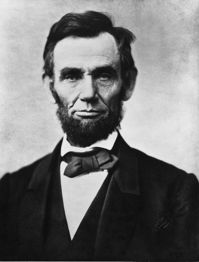
The year that is drawing towards its close, has been filled with the blessings of fruitful fields and healthful skies. To these bounties, which are so constantly enjoyed that we are prone to forget the source from which they come, others have been added, which are of so extraordinary a nature, that they cannot fail to penetrate and soften even the heart which is habitually insensible to the ever watchful providence of Almighty God.
In the midst of a civil war of unequaled magnitude and severity, which has sometimes seemed to foreign States to invite and to provoke their aggression, peace has been preserved with all nations, order has been maintained, the laws have been respected and obeyed, and harmony has prevailed everywhere except in the theatre of military conflict; while that theatre has been greatly contracted by the advancing armies and navies of the Union.
Pope Benedict spoke in his General Audience today of the great 14th century Dominican sister, Saint Catherine of Siena, holy woman, ambassador, truth-speaker, Doctor of the Church and spiritual mother. His choice of saint could not have been better since the presence of many of the new cardinals were in attendance. Rome Reports provides a brief video clip on the papal address.
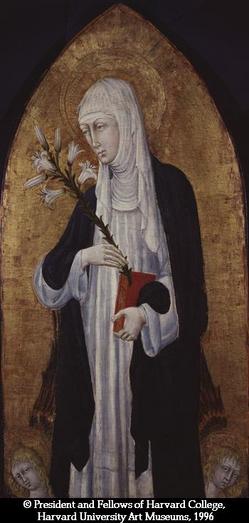
Today I would
like to speak to you about a woman who has had an eminent role in the history
of the Church. She is St. Catherine of Siena. The century in which she lived --
the 14th -- was a troubled time for the life of the Church and for the
whole social fabric in Italy and Europe.
However, even in the moments of greatest difficulty, the Lord does not cease to bless his People, raising men and women saints who stir minds and hearts, bringing about conversion and renewal. Catherine is one of these and still today she speaks to us and pushes us to walk courageously toward sanctity to be disciples of the Lord in an ever fuller sense.
Born in Siena in 1347 to a very numerous family, she died in her native city in 1380. At 16, moved by a vision of St. Dominic, she entered the Dominican Third Order, in the feminine branch called the Mantellate. She stayed with her family and confirmed the vow of virginity she made privately when she was still an adolescent; she dedicated herself to prayer, penance, and works of charity, above all for the benefit of the sick.
When her fame for sanctity spread, she became the protagonist in an intense activity of spiritual counsel, dealing with all categories of persons: nobles and politicians, artists and ordinary people, consecrated persons, ecclesiastics, and including Pope Gregory XI, who at that time resided in Avignon and whom Catherine exhorted energetically and effectively to return to Rome. She traveled a lot to solicit the interior reform of the Church and to foster peace between states. For this reason also the Venerable John Paul II declared her co-patroness of Europe: so that the Old World would never forget its Christian roots that are at the base of its journey and continue to draw from the Gospel the fundamental values that ensure justice and concord.
The news that
some Europeans have been wrecked on a desert island is gratifying, in so far as
it shows that there are still some desert islands for us to be wrecked on.
Moreover, it is also interesting because these, the latest facts, actually
support the oldest stories. For instance, superior critics have often sniffed
at the labours of Robinson Crusoe, specifically upon the ground that he
depended so much upon stores from the sunken wreck. But these actual people
shipwrecked a few weeks ago depended entirely upon them; and yet the critics
might not have cared for the billet. A few years ago, when physical science was
still taken seriously, a very clever boys' book was written, called
"Perseverance Island." It was written in order to show how "Robinson Crusoe"
ought to have been written. In this story, the wrecked man gained practically
nothing from the wreck. He made everything out of the brute materials of the
island. He was, I think, allowed the advantage of some broken barrels washed up
from the wreck with a few metal hoops round them. It would have been rather
hard on the poor man to force him to make a copper-mine or a tin-mine. After
all, the process of making everything that one wants cannot be carried too far
in this world. We have all saved something from the ship. At the very least,
there was something that Crusoe could not make on the island; there was
something Crusoe was forced to steal from the wreck; I mean Crusoe. That
precious bale, in any case, he brought ashore; that special cargo called "R.
C.," at least, did not originate in the island. It was a free import, and not a
native manufacture. Crusoe might be driven to make his own trousers on the
island. But he was not driven to make his own legs on the island; if that had
been his first technical job he might have approached it with a hesitation not
unconnected with despair. Even the pessimist when he thinks, if he ever does,
must realise that he has something to be thankful for: he owes something to the
world, as Crusoe did to the ship. You may regard the universe as a wreck: but
at least you have saved something from the wreck.
Not only does the Christian encounter the great act of thanksgiving at every Mass, at moment of prayer, at the very realization that every point of life is given --and not taken-- but also that everything is total grace given by God for our happiness in this life and in the next. Happy Thanksgiving, friends!
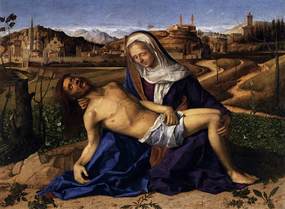 Manuela Camagni, 56, a member of the Memores Domini (the lay consecrated group of Communion and Liberation), died earlier today as a result of injuries sustained in a car accident Tuesday evening in Rome. She was taken to Rome's Umberto I Polyclinic for treatment and latter died. Manuela served in the Apostolic Household helping to care for the temporal needs of Pope Benedict XVI. She worked closely with Monsignors Georg Gaenswain and Alfred Xuereb, the two personal secretaries of the Pope. Manuela, with the three other Memores Domini, are among the closest collaborators, "the family" of His Holiness.
Manuela Camagni, 56, a member of the Memores Domini (the lay consecrated group of Communion and Liberation), died earlier today as a result of injuries sustained in a car accident Tuesday evening in Rome. She was taken to Rome's Umberto I Polyclinic for treatment and latter died. Manuela served in the Apostolic Household helping to care for the temporal needs of Pope Benedict XVI. She worked closely with Monsignors Georg Gaenswain and Alfred Xuereb, the two personal secretaries of the Pope. Manuela, with the three other Memores Domini, are among the closest collaborators, "the family" of His Holiness.
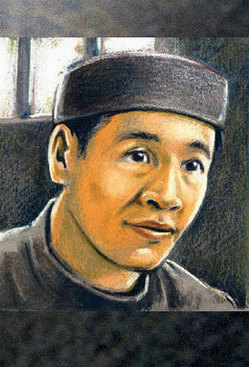
O God, source and origin of all fatherhood, who kept the
Martyrs Saint Andrew Dung-Lac and his companions faithful to the Cross of your
Son, even to the shedding of their blood, grant, through their intercession
that, spreading your love among our brothers and sisters, we may be your
children both in name and in truth.
Saint Andrew and his 117 companions are known as the Martyrs of Vietnam, killed for their faith in Christ between 1745 and 1862, but these people are few in number compared with the vast number of people thought to have been persecuted. Saint Andrew was a secular priest who was killed in 1839. Among the companions there were 8 bishops, 50 priests, 59 lay faithful of Vietnamese, Spanish and French nationalities. Pope John Paul II canonized these saints in 1988.
It's funny for Catholics to hear of the Queen being the head of the Church of England. But she is. Anglican way of doing things is foreign to my experience and so I am intrigued by what I read and hear about the CofE. She gently reminds the bishops and assembled laity that there are crucial challenges to face and exhorts them to heed Saint Paul. The Queen also dares to mention the recent visit of Pope Benedict to England in that protestant hall. As a point of contrast, read through the following address Her Majesty gave today to her ecclesial body: there's a distinct difference in content and style between what is said by the Queen and how the Pope would say things. We need to pray that the Queen and her family come home to the bosom of Mother Church.
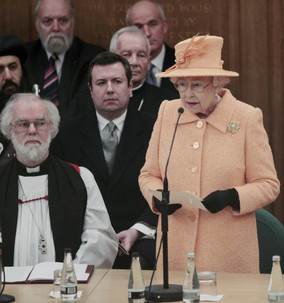
Your Graces, The Convocations of Canterbury and York, duly called together in obedience to Our Royal Writs, are on this day joined together in accordance with the Synodical Government Measure 1969 and the House of Laity is added to them in accordance with that Measure, so as to constitute the ninth General Synod of the Church of England.
Those who serve the Church of England in its public ministry are required to affirm their loyalty to its inheritance of faith as their inspiration and guidance under God. They also declare their commitment to bringing the grace and truth of Christ and making him known to those in their care.
The opening of a new Synod is a moment when we can all give thanks for the witness of those who have gone before, and pray for wisdom as you seek to balance change and continuity in the decisions that lie ahead of you.
Next year will see two important anniversaries. It will be four hundred years since the publication of the Authorised Version of the Bible commissioned by King James, and two hundred years since the foundation of the National Society for Promoting Religious Education. Both developments had a lasting impact on the life of the Church and the nation.
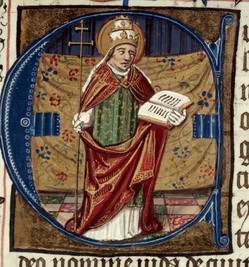 How blessed and wonderful, beloved, are the gifts of
God. Life in immortality! Brightness in righteousness! Truth in full assurance!
Faith in confidence! Temperance in holiness! And all this God has subjected to
our understandings: What therefore will those things be which he has prepared
for them that wait for him? Only the Creator and Father of spirits, the Most
Holy, knows both the greatness and beauty of them. Let us therefore strive with
all earnestness, that we may be found in the number of those that wait for him,
and that we may receive the reward which he has promised. But how, beloved,
shall we do this? We must fix our minds by faith towards God, and seek those
things that are pleasing and acceptable to him. We must perform those things
that are agreeable to his holy will and follow the way of truth, casting off
from us all unrighteousness and iniquity, together with all covetousness,
strife, evil manners, deceit, whispering, detractions, all hatred of God, pride
and boasting, or vain-glory and ambition; For they that do these things are
odious to God, and not only they that do them, but also all such as approve of
those that do them. (St Clement I to the Corinthians 17)
How blessed and wonderful, beloved, are the gifts of
God. Life in immortality! Brightness in righteousness! Truth in full assurance!
Faith in confidence! Temperance in holiness! And all this God has subjected to
our understandings: What therefore will those things be which he has prepared
for them that wait for him? Only the Creator and Father of spirits, the Most
Holy, knows both the greatness and beauty of them. Let us therefore strive with
all earnestness, that we may be found in the number of those that wait for him,
and that we may receive the reward which he has promised. But how, beloved,
shall we do this? We must fix our minds by faith towards God, and seek those
things that are pleasing and acceptable to him. We must perform those things
that are agreeable to his holy will and follow the way of truth, casting off
from us all unrighteousness and iniquity, together with all covetousness,
strife, evil manners, deceit, whispering, detractions, all hatred of God, pride
and boasting, or vain-glory and ambition; For they that do these things are
odious to God, and not only they that do them, but also all such as approve of
those that do them. (St Clement I to the Corinthians 17)
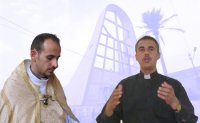 There is a movement afoot to investigate the sanctity of those Christians killed in Iraq just for being Christian, perhaps leading to having these Christians being canonized saints. Interesting question...
There is a movement afoot to investigate the sanctity of those Christians killed in Iraq just for being Christian, perhaps leading to having these Christians being canonized saints. Interesting question...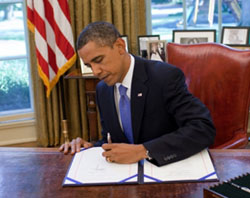 President Obama revised 2001 faith based initiatives established by President George W. Bush with "Fundamental Principles and Policymaking Criteria for Partnerships with Faith-Based and Other Neighborhood Organizations" on November 17, 2010.
President Obama revised 2001 faith based initiatives established by President George W. Bush with "Fundamental Principles and Policymaking Criteria for Partnerships with Faith-Based and Other Neighborhood Organizations" on November 17, 2010.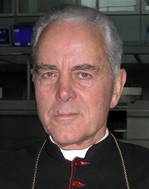
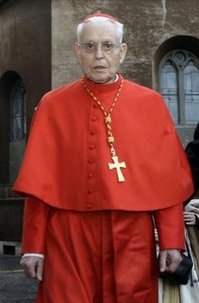 Urbano Cardinal Navarrete Cortés, SJ, 90, died today. The Mass of Christian Burial is scheduled for November 24; the Dean of the College of Cardinals, Angelo Cardinal Sodano will celebrate the Sacrifice of the Mass and His Holiness will preside over the Final Commendation and give a valediction.
Urbano Cardinal Navarrete Cortés, SJ, 90, died today. The Mass of Christian Burial is scheduled for November 24; the Dean of the College of Cardinals, Angelo Cardinal Sodano will celebrate the Sacrifice of the Mass and His Holiness will preside over the Final Commendation and give a valediction. 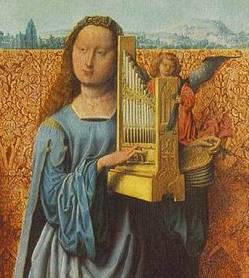 The encounter with the beautiful can become the wound
of the arrow that strikes the heart and in this way opens our eyes, so that
later, from this experience, we take the criteria for judgment and can
correctly evaluate the arguments. For me an unforgettable experience was the
Bach concert that Leonard Bernstein conducted in Munich after the sudden death
of Karl Richter. I was sitting next to the Lutheran Bishop Hanselmann. When the
last note of one of the great Thomas-Kantor-Cantatas triumphantly faded away,
we looked at each other spontaneously and right then we said: "Anyone who
has heard this, knows that the faith is true." The music had such an
extraordinary force of reality that we realized, no longer by deduction, but by
the impact on our hearts, that it could not have originated from nothingness,
but could only have come to be through the power of the Truth that became real in
the composer's inspiration. (Message to Communion and Liberation, August 2002,
Rimini, Italy; text available May 2, 2005, Zenit.org)
The encounter with the beautiful can become the wound
of the arrow that strikes the heart and in this way opens our eyes, so that
later, from this experience, we take the criteria for judgment and can
correctly evaluate the arguments. For me an unforgettable experience was the
Bach concert that Leonard Bernstein conducted in Munich after the sudden death
of Karl Richter. I was sitting next to the Lutheran Bishop Hanselmann. When the
last note of one of the great Thomas-Kantor-Cantatas triumphantly faded away,
we looked at each other spontaneously and right then we said: "Anyone who
has heard this, knows that the faith is true." The music had such an
extraordinary force of reality that we realized, no longer by deduction, but by
the impact on our hearts, that it could not have originated from nothingness,
but could only have come to be through the power of the Truth that became real in
the composer's inspiration. (Message to Communion and Liberation, August 2002,
Rimini, Italy; text available May 2, 2005, Zenit.org)
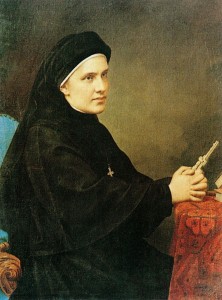
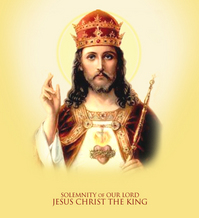 O Jesus Christ, I acknowledge Thee as universal King.
All that has been made, has been created for Thee. Exercise all Thy rights over
me. I renew my baptismal vows, renouncing Satan, his pomp and his works; and I
promise to live as a good Christian. In particular do I pledge myself to labor,
to the best of my ability, for the triumph of the rights of God and Thy Church.
O Jesus Christ, I acknowledge Thee as universal King.
All that has been made, has been created for Thee. Exercise all Thy rights over
me. I renew my baptismal vows, renouncing Satan, his pomp and his works; and I
promise to live as a good Christian. In particular do I pledge myself to labor,
to the best of my ability, for the triumph of the rights of God and Thy Church.If you want to know what Pope Benedict XVI really said about AIDS and condom use, you will want to read Chapter 11, of Peter Seewald's interview of the Pope in Light of the World, "The Journeys of a Shepherd," pages 117-119:
 On the occasion of your trip to Africa in March 2009, the Vatican's policy on AIDs once again became the target of media criticism. Twenty-five percent of all AIDs victims around the world today are treated in Catholic facilities. In some countries, such as Lesotho, for example, the statistic is 40 percent. In Africa you stated that the Church's traditional teaching has proven to be the only sure way to stop the spread of HIV. Critics, including critics from the Church's own ranks, object that it is madness to forbid a high-risk population to use condoms.
On the occasion of your trip to Africa in March 2009, the Vatican's policy on AIDs once again became the target of media criticism. Twenty-five percent of all AIDs victims around the world today are treated in Catholic facilities. In some countries, such as Lesotho, for example, the statistic is 40 percent. In Africa you stated that the Church's traditional teaching has proven to be the only sure way to stop the spread of HIV. Critics, including critics from the Church's own ranks, object that it is madness to forbid a high-risk population to use condoms.
The media coverage completely ignored the rest of the trip to Africa on account of a single statement. Someone had asked me why the Catholic Church adopts an unrealistic and ineffective position on AIDs. At that point, I really felt that I was being provoked, because the Church does more than anyone else. And I stand by that claim. Because she is the only institution that assists people up close and concretely, with prevention, education, help, counsel, and accompaniment. And because she is second to none in treating so many AIDs victims, especially children with AIDs.
I had the chance to visit one of these wards and to speak with the patients. That was the real answer: The Church does more than anyone else, because she does not speak from the tribunal of the newspapers, but helps her brothers and sisters where they are actually suffering. In my remarks I was not making a general statement about the condom issue, but merely said, and this is what caused such great offense, that we cannot solve the problem by distributing condoms. Much more needs to be done. We must stand close to the people, we must guide and help them; and we must do this both before and after they contract the disease.
As a matter of fact, you know, people can get condoms when they want them anyway. But this just goes to show that condoms alone do not resolve the question itself. More needs to happen. Meanwhile, the secular realm itself has developed the so-called ABC Theory: Abstinence-Be Faithful-Condom, where the condom is understood only as a last resort, when the other two points fail to work. This means that the sheer fixation on the condom implies a banalization of sexuality, which, after all, is precisely the dangerous source of the attitude of no longer seeing sexuality as the expression of love, but only a sort of drug that people administer to themselves. This is why the fight against the banalization of sexuality is also a part of the struggle to ensure that sexuality is treated as a positive value and to enable it to have a positive effect on the whole of man's being.
There may be a basis in the case of some individuals, as perhaps when a male prostitute uses a condom, where this can be a first step in the direction of a moralization, a first assumption of responsibility, on the way toward recovering an awareness that not everything is allowed and that one cannot do whatever one wants. But it is not really the way to deal with the evil of HIV infection. That can really lie only in a humanization of sexuality.
Are you saying, then, that the Catholic Church is actually not opposed in principle to the use of condoms?
She of course does not regard it as a real or moral solution, but, in this or that case, there can be nonetheless, in the intention of reducing the risk of infection, a first step in a movement toward a different way, a more human way, of living sexuality.
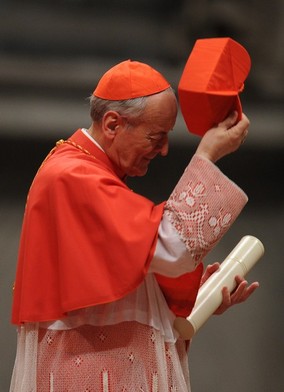 The tradition is that when a cardinal is made by the pope, the cardinal becomes a priest of the Diocese of Rome. As members of the Roman clergy, he receives a church, though now in title only, (which he vicarious takes care of by finding the funding for projects), and has the responsibility of entering a conclave to elect a new pope and when asked, to provide his consultation on certain topics.
The tradition is that when a cardinal is made by the pope, the cardinal becomes a priest of the Diocese of Rome. As members of the Roman clergy, he receives a church, though now in title only, (which he vicarious takes care of by finding the funding for projects), and has the responsibility of entering a conclave to elect a new pope and when asked, to provide his consultation on certain topics.
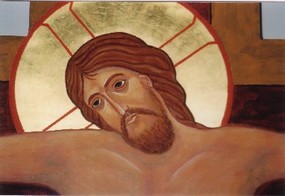 "If to Christ our Lord is given all power in heaven and
on earth; if all men, purchased by his precious blood, are by a new right
subjected to his dominion; if this power embraces all men, it must be clear
that not one of our faculties is exempt from his empire. He must reign in our
minds, which should assent with perfect submission and firm belief to revealed
truths and to the doctrines of Christ. He must reign in our wills, which should
obey the laws and precepts of God. He must reign in our hearts, which should
spurn natural desires and love God above all things, and cleave to him alone.
He must reign in our bodies and in our members, which should serve as
instruments for the interior sanctification of our souls, or to use the words
of the Apostle Paul, as instruments of justice unto God" (Romans 6:13).
"If to Christ our Lord is given all power in heaven and
on earth; if all men, purchased by his precious blood, are by a new right
subjected to his dominion; if this power embraces all men, it must be clear
that not one of our faculties is exempt from his empire. He must reign in our
minds, which should assent with perfect submission and firm belief to revealed
truths and to the doctrines of Christ. He must reign in our wills, which should
obey the laws and precepts of God. He must reign in our hearts, which should
spurn natural desires and love God above all things, and cleave to him alone.
He must reign in our bodies and in our members, which should serve as
instruments for the interior sanctification of our souls, or to use the words
of the Apostle Paul, as instruments of justice unto God" (Romans 6:13).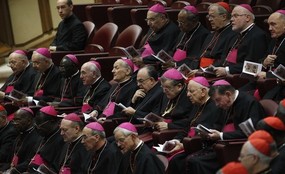 Billed my some as extra-ordinary, but likely seen by insiders as ordinary, Pope Benedict met with his cardinals and the new cardinals --24 of them-- he intends to make tomorrow, in a forum where information is exchanged and consultation given. The meeting of Pope and cardinals was conducted in the context of prayer. Prayer and exchange, not the making of decisions was the format. It is estimated that about 150 of the worlds 203 cardinals met today. Topics ranged from the sacred Liturgy and religious freedom, but also the exercise of religion, secularism, conversion and entering into full communion with the Catholic Church to healthcare. Since this is also the 10th anniversary of Dominus Iesus, the document which recalls that salvation comes uniquely and universally through the person of Jesus Christ, the Pope and cardinals will reflect on the impact this document has made since its publication.
Billed my some as extra-ordinary, but likely seen by insiders as ordinary, Pope Benedict met with his cardinals and the new cardinals --24 of them-- he intends to make tomorrow, in a forum where information is exchanged and consultation given. The meeting of Pope and cardinals was conducted in the context of prayer. Prayer and exchange, not the making of decisions was the format. It is estimated that about 150 of the worlds 203 cardinals met today. Topics ranged from the sacred Liturgy and religious freedom, but also the exercise of religion, secularism, conversion and entering into full communion with the Catholic Church to healthcare. Since this is also the 10th anniversary of Dominus Iesus, the document which recalls that salvation comes uniquely and universally through the person of Jesus Christ, the Pope and cardinals will reflect on the impact this document has made since its publication.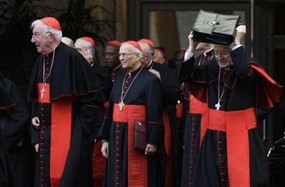
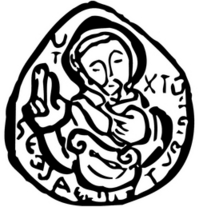 Communion and Liberation follows the call of the
Italian bishops to pray Sunday, November 21 for the Christians of Iraq, "who
are suffering the tremendous trial of blood witness to the faith" (Final
communiqué of the Assembly of the Italian Episcopal Conference, November 11, 2010).
Communion and Liberation follows the call of the
Italian bishops to pray Sunday, November 21 for the Christians of Iraq, "who
are suffering the tremendous trial of blood witness to the faith" (Final
communiqué of the Assembly of the Italian Episcopal Conference, November 11, 2010).What are the Church's greatest needs at the present time? Don't be surprised at Our answer and don't write it off as simplistic or even superstitious: one of the Church's greatest needs is to be defended against the evil we call the Devil.
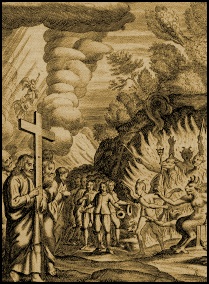
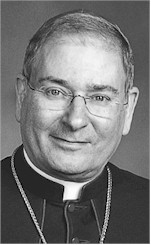 The out-going chairman of the bishops' Committee on Divine Worship, Bishop Arthur Serratelli of Paterson, gave the following update to the USCCB today. Bishop Serratelli is now succeeded by the Archbishop of New Orleans, the Most Reverend Gregory M. Aymond. The USCCB press release is here.
The out-going chairman of the bishops' Committee on Divine Worship, Bishop Arthur Serratelli of Paterson, gave the following update to the USCCB today. Bishop Serratelli is now succeeded by the Archbishop of New Orleans, the Most Reverend Gregory M. Aymond. The USCCB press release is here.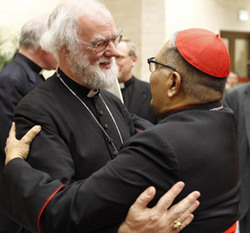
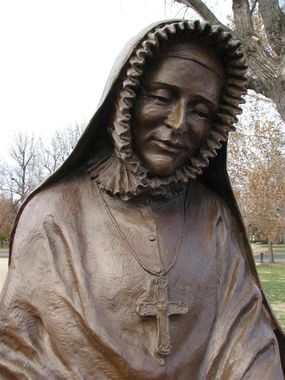 Saint Rose Philippine was called "the woman who is always praying." Her singular focus on Christ and the mission won her esteem among those who found the Christian Gospel foreign. She is buried in St. Charles, MO, having died there on this date in 1852 at the age of 83. She lived the Lord's parable of the Pearl of Great Price.
Saint Rose Philippine was called "the woman who is always praying." Her singular focus on Christ and the mission won her esteem among those who found the Christian Gospel foreign. She is buried in St. Charles, MO, having died there on this date in 1852 at the age of 83. She lived the Lord's parable of the Pearl of Great Price.
Beatified by Pope Pius XII in 1940 and canonized by Pope John Paul II in 1988, Duchesne is the US founder of the Society of the Sacred Heart, an order of religious women who were first founded in France by Saint Madeleine Sophie Barat.
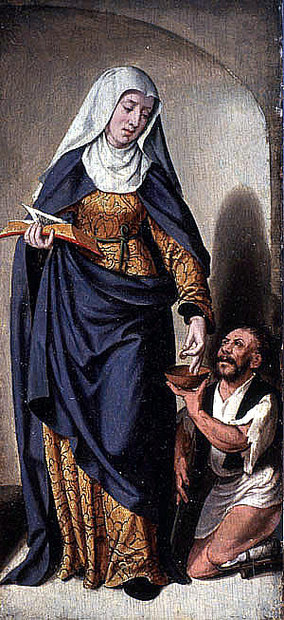
Praise to the holy woman whose home is built on faithful love and whose pathway leads to God.
Father, You
helped Elizabeth of Hungary to recognize and honor Christ in the poor of this
world. Let her prayers help us to serve our brothers and sisters in time of
trouble and need.
Saint Elizabeth is the patroness of the Third Order Franciscans (the laity and secular priests). Her example of patience and holiness modeled on the good example of the Franciscan friars leads us to be attentive to the poor in our midst.
In an October address, the Holy Father spoke of today's saint:
She behaved to her subjects in the same way that she behaved to God. Among the Sayings of the four maids we find this testimony: "She did not eat any food before ascertaining that it came from her husband's property or legitimate possessions. While she abstained from goods procured illegally, she also did her utmost to provide compensation to those who had suffered violence."
She is a true example for all who have roles of leadership: the exercise of authority, at every level, must be lived as a service to justice and charity, in the constant search for the common good.
Elizabeth diligently practiced works of mercy...
Read the entire address Pope Benedict gave on Saint Elizabeth of Hungary on October 20, 2010.
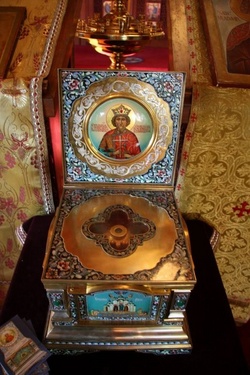 The privilege of having the relics of one's patron coming to your home is a singular experience. Friends who are seminarians at Saint Vladimir's Orthodox Theological Seminary welcomed their patron's relics in solemn ceremony this past weekend.
The privilege of having the relics of one's patron coming to your home is a singular experience. Friends who are seminarians at Saint Vladimir's Orthodox Theological Seminary welcomed their patron's relics in solemn ceremony this past weekend.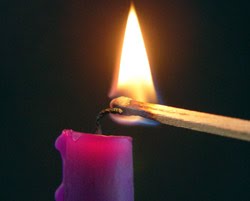 Marking the beginning of Advent for the Roman Church,
the Holy Father invited the world's dioceses (parishes & religious
institutions) religious communities, ecclesial movements and associations
throughout the world to join him in a Solemn Vigil for All Nascent Human Life (resources here).
Marking the beginning of Advent for the Roman Church,
the Holy Father invited the world's dioceses (parishes & religious
institutions) religious communities, ecclesial movements and associations
throughout the world to join him in a Solemn Vigil for All Nascent Human Life (resources here).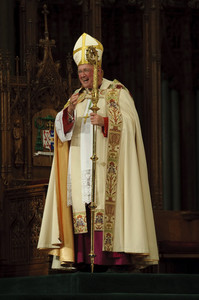
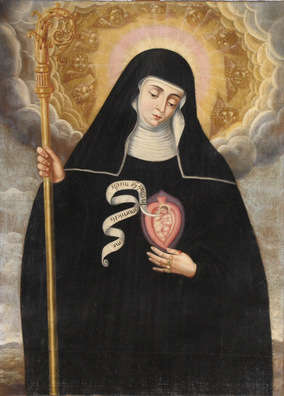
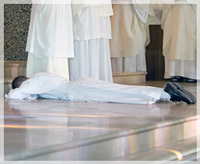
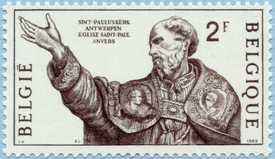 The learned will shine like the brilliance of the firmament, and those who train many in the ways of justice will sparkle like the stars for all eternity. (ent. ant.)
The learned will shine like the brilliance of the firmament, and those who train many in the ways of justice will sparkle like the stars for all eternity. (ent. ant.)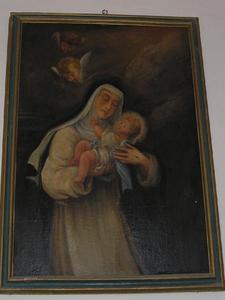
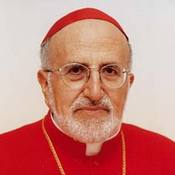 As a way of
showing solidarity with our Christian brothers and sisters in Iraq who faced
such horrible circumstances because of their faith Jesus Christ, I am extendiing
an invitation to all of us: writing letter(s) of fraternal solidarity with our
brothers and sisters through the Chaldean Catholic Patriarch, His Beatitude, Patriarch Emmanuel III Delly. He's the head of the Conference of Catholic Bishops in Iraq.
As a way of
showing solidarity with our Christian brothers and sisters in Iraq who faced
such horrible circumstances because of their faith Jesus Christ, I am extendiing
an invitation to all of us: writing letter(s) of fraternal solidarity with our
brothers and sisters through the Chaldean Catholic Patriarch, His Beatitude, Patriarch Emmanuel III Delly. He's the head of the Conference of Catholic Bishops in Iraq.
An initiative of solidarity is proposed by members of Communion and Liberation
Our many friends in the lay Catholic movement, Communion and Liberation have also moved by the plight of Iraqi Christians has organized a gesture of solidarity with the Iraqi Christians in the form of a letter campaign. One of our friends spoke with the Apostolic Nuncio (the Pope's ambassador) at the UN, Archbishop Francis Assisi Chullikatt who said he'd be very happy for our initiative and offered his diplomatic pouch (direct mail) to reach the Nunciature in Iraq.
So, if you are inclined to write an email in solidarity, you may send it to tonuncio@gmail.com and the email will be printed and hand-delivered to Archbishop Chullikatt on Tuesday, November 16.
Messages ought to be addressed to His Beatitude, Patriarch Emmanuel
III Delly, Patriarch of Babylon of the Chaldeans.
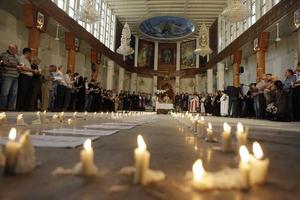 The pain and suffering endured but not consumed by some people is an extraordinary testimony to Grace. The AP news stories about the Mass prayed in the church assaulted by the slayings of Syrian Christians on October 31 brings tears to my eyes especially when I read that the walls retained the blood and flesh of the victims. No doubt poignant relics of the witnesses of humanity and Christ. I bet you no one entered Our Lady of Salvation Church expecting to lay down their life in such a dramatic manner.
The pain and suffering endured but not consumed by some people is an extraordinary testimony to Grace. The AP news stories about the Mass prayed in the church assaulted by the slayings of Syrian Christians on October 31 brings tears to my eyes especially when I read that the walls retained the blood and flesh of the victims. No doubt poignant relics of the witnesses of humanity and Christ. I bet you no one entered Our Lady of Salvation Church expecting to lay down their life in such a dramatic manner.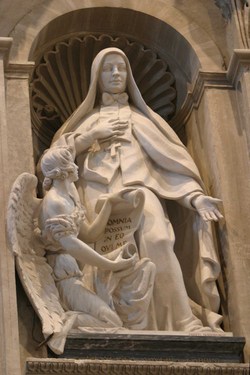 O Lord and Bridegroom of your Church,
O Lord and Bridegroom of your Church,
We praise you for this virgin wise
Who, lighted lamp in hand, went forth
To preach her Groom and win his prize!
From early youth she heard your voice
And longed to work in Asian lands;
But "in the west you'll find your east,"
The pope said, firm in his commands.
So from her home, Francesca came
That she might care for those who left
Italian homes to seek for work,
But in the New World were bereft.
She founded schools and hospitals
And orphan homes, and traveled wide;
Despite ill health and stature small
Her works became our Church's pride.
She labored long with sisters brave,
And soon her congregation spread
From North to Southern hemisphere,
Although she sailed the seas with dread.
In labors long and hard, she worked
That Christ her Lord might be well served
In poor and sick and ignorant,
That they might feel God's love deserved.
O Trinity of love most great,
O Father, Son, and Spirit blest,
With Frances and with all your saints
Bring us, at length, to heaven's rest.
J. Michael Thompson
Copyright © 2009, World Library Publications
LM; DUKE STREET, ROCKINGHAM NEW, HAMBURG
Make no joke about it: the devil exists, people do evil things. Of course, the existence of the devil is not at all the same as we seen in the movies. We know this is a fact from our personal experience and from the Gospels: the devil works on believers to get them away from adhering to Jesus Christ. We don't fool around with the devil and his temptations, nor his ability to possess a person. So, ridicule would not be the correct approach to understanding the nature of the devil and demonic possession. While believers say that evil is real, it is our unqualified belief that evil and the devil are powerless to the power of Jesus Christ, the eternal Son of God, the Second Person of the Blessed Trinity. It is Jesus who expels the devil, not the priest. Evil is terminated only through prayer, fasting, the sacraments; when it is discerned by competent authority, the praying of the Rite of Exorcism may be done. The Rite is performed only by a validly ordained Catholic priest who is deputed by the bishop of the diocese in which the priest lives, and who is known to live a life of virtue and sanctity.
 The Church protects the exercise of the Rite of Exorcism in the Code of Canon Law (1983) by saying, "No one can perform exorcisms legitimately upon the possessed unless he has obtained special and express permission from the local ordinary. The local ordinary is to give this permission only to a prebyter who has piety, knowledge, prudence and intergrity of life (1172).
The Church protects the exercise of the Rite of Exorcism in the Code of Canon Law (1983) by saying, "No one can perform exorcisms legitimately upon the possessed unless he has obtained special and express permission from the local ordinary. The local ordinary is to give this permission only to a prebyter who has piety, knowledge, prudence and intergrity of life (1172).
The awareness of evil in the world is increasing with the desire of the Church to find competent priests and bishops --not every priest and bishop have the qualifications to do an exorcism-- i.e., some are incapable of doing the Rite of Exorcism.
"Anyone who does not believe in the Devil does not believe in the Gospel," Pope John Paul II. Catholics hold that the Lord gave the power to cast out demons to the Church (cf. Mark 16:17).
A recent story dealing with the training of exorcists today. The Catholic bishop of Sprinfiield in Illinois and canonist, Bishop Thomas Paprocki organized a meeting of priests and bishops to orient them with the 1999 revision De Exorcismis et Supplicationibus Quibusdam (On Exorcism and Certain Supplications). The purpose is to gain the proper skills to correctly discern the need to use the Rite of Exorcism. Its use is infrequent but sometimes necessary.
Some critics suggest this type of meeting is playing into a "reversion" to prior times, playing on the fears of the weak. What Bishop Paprocki did is to provide some members of the clergy the tools, theology and expertise, training and insight into knowing more about matters transcendent.
I have heard from priest friends that the old rites of baptism and exorcism are stronger in getting rid of the devil than the newer ones. You may want to read this article, "The New Rite of Exorcism, The Influence of the Evil One."
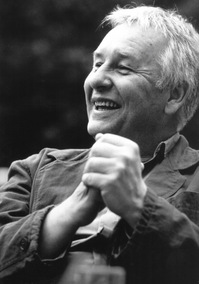 The NY Times reports this afternoon that Henryk Mikolaj Górecki died today after a period of illness. Gorecki was 76.
The NY Times reports this afternoon that Henryk Mikolaj Górecki died today after a period of illness. Gorecki was 76.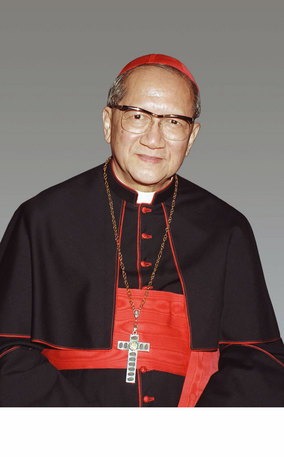
The process of canonization has begun, as many know, of Francis Xavier Cardinal Nguyên Van Thuán. The cardinal's reputation of holiness was born through his virtue and the crucible of suffering in prison for 13 years, 9 of them in solitary confinement. His is a true to witness to hope for us today.
Pope Benedict twice referred to Cardinal Van Thuán in his 2007 encyclical, Spe Salvi, where spoke about the way the cardinal faced hopelessness. The Pope said of Van Thuán ought to be a challenge to us: "the fact that he could listen and speak to God became for him an increasing power of hope, which enabled him, after his release, to become for people all over the world a witness to hope --to that great hope which does not wane even in the nights of solitude" (32).
Van Thuán was a priest for 49 years, a bishop for 35 and a cardinal of the Roman Church for a year and a half. When he came to Rome Pope John Paul II appointed him the president of the Pontifical Council for Justice and Peace.
Cardinal Francis Xavier Cardinal Nguyên Van Thuán died on September 16, 2002, at 74 years old. The Congregation of Saints allowed the process of canonization to proceed in 2007 and the cause is currently be studied. It is reported that several miracles are claimed or credited to the intercession of Cardinal Francis Xavier Cardinal Nguyên Van Thuán.
When Cardinal Van Thuán is canonized he will be the first Vietnamese saints since the martyrs of Vietnam. A great spiritual honor for the people of Viêt Nam, a beacon of hope.
Books by Francis Xavier Cardinal Nguyên Van Thuán:
Testimony of Hope: The Spiritual Exercises of Pope John Paul II (2000)
The Road of Hope: A Gospel from Prison (2001)
Prayers of Hope, Words of Courage (2002)
Five Loaves & Two Fish (2003)
- Rome Reports TV News Agency did a video presentation in early November on the cardinal with a brief interview with his sister, Tien Thérèse, giving good insights into the person of His Eminence. See the video here.
- The official website for the cardinal is located here.
- Recent news on Cardinal Van Thuán can be read here.
Prayer for the Beatification of Francis Xavier Cardinal Nguyên Van Thuán
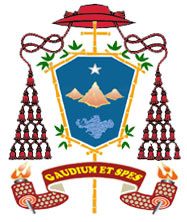
O mighty and eternal God, Father, Son and Holy Spirit I offer thanks for giving to the Church the heroic testimony of Cardinal Francis Xavier Nguyên Van Thuân. The suffering he experienced in prison, which he united with the crucified Christ and commended to the maternal protection of Mary, is for the Church and the world a shining witness of unity and forgiveness, and of justice and peace. His loving person and his Episcopal ministry radiate the light of faith, the enthusiasm of hope and the warmth of love. Now, my Lord, through his intercession and according to your will, grant me the grace I am imploring in the hope that he will soon be elevated to the honour of sainthood.
Imprimatur given in RomeGiampaolo Crepaldi
Archbishop-Secretary, Pontifical Council for Justice and Peace
September 16, 2007
Lord, fill Your Church with the Spirit that gave Saint Josaphat the courage to lay down his life for his people. By his prayers may Your Spirit make us strong and willing to offer our lives for our brothers and sisters.
God, you are the martyrs' crown!
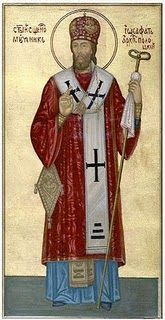 Hear the hymn we raise in gladness,
Hear the hymn we raise in gladness, Praising good Saint Josaphat,
Who in midst of earthly sadness
Followed Truth, and Way, and Life,
Braving trouble, scorn, and strife.
Josaphat, a preacher bold,
Was a bishop strong and fearless.
In his love for all his flock
And his ardor, he was peerless:
"That in Christ we one may be"
Was his earnest, heart-felt plea.
Strong defender of his Church,
Lover of the Eastern teaching,
Faithful priest and leader true
Urged his people through his preaching,
And, by God's mysterious grace,
Took in heav'n a martyr's place.
God the Father, God the Son,
God the Spirit, hear our praises
With our hymns on this glad day;
Which your Church in glory raises.
With Saint Josaphat, in song,
Echoing the ages long!
Copyright © 2009, World Library Publications
78 78 77; GROSSER GOTT, or JESU MEINE ZUVERSICHT
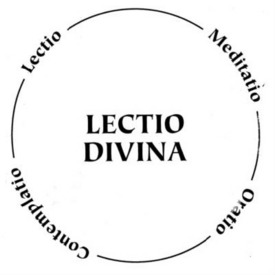 Pope Benedict reviews "... the basic steps of this
procedure. It opens with the reading (lectio)
of a text, which leads to a desire to understand its true content: what does
the biblical text say in itself? Without this, there is
always a risk that the text will become a pretext for never moving beyond our
own ideas. Next comes meditation (meditatio),
which asks: what does the biblical text say to us?
Here, each person, individually but also as a member of the community, must let
himself or herself be moved and challenged. Following this comes prayer (oratio),
which asks the question: what do we say to the Lord in response to his word?
Prayer, as petition, intercession, thanksgiving and praise, is the primary way
by which the word transforms us. Finally, lectio divina
concludes with contemplation (contemplatio), during which
we take up, as a gift from God, his own way of seeing and judging reality, and
ask ourselves what conversion of mind, heart and life is the Lord asking of
us? In the Letter to the Romans,
Saint Paul tells us: "Do not be conformed to this world, but be transformed by
the renewal of your mind, that you may prove what is the will of God, what is
good and acceptable and perfect" (12:2). Contemplation aims at creating within
us a truly wise and discerning vision of reality, as God sees it, and at
forming within us "the mind of Christ" (1 Cor
2:16). The word of God appears here as a criterion for discernment: it is
"living and active, sharper than any two-edged sword, piercing to the division
of soul and spirit, of joints and marrow, and discerning the thoughts and
intentions of the heart" (Heb 4:12). We do well also
to remember that the process of lectio divina
is not concluded until it arrives at action (actio),
which moves the believer to make his or her life a gift for others in charity" (Verbum Domini, 87).
Pope Benedict reviews "... the basic steps of this
procedure. It opens with the reading (lectio)
of a text, which leads to a desire to understand its true content: what does
the biblical text say in itself? Without this, there is
always a risk that the text will become a pretext for never moving beyond our
own ideas. Next comes meditation (meditatio),
which asks: what does the biblical text say to us?
Here, each person, individually but also as a member of the community, must let
himself or herself be moved and challenged. Following this comes prayer (oratio),
which asks the question: what do we say to the Lord in response to his word?
Prayer, as petition, intercession, thanksgiving and praise, is the primary way
by which the word transforms us. Finally, lectio divina
concludes with contemplation (contemplatio), during which
we take up, as a gift from God, his own way of seeing and judging reality, and
ask ourselves what conversion of mind, heart and life is the Lord asking of
us? In the Letter to the Romans,
Saint Paul tells us: "Do not be conformed to this world, but be transformed by
the renewal of your mind, that you may prove what is the will of God, what is
good and acceptable and perfect" (12:2). Contemplation aims at creating within
us a truly wise and discerning vision of reality, as God sees it, and at
forming within us "the mind of Christ" (1 Cor
2:16). The word of God appears here as a criterion for discernment: it is
"living and active, sharper than any two-edged sword, piercing to the division
of soul and spirit, of joints and marrow, and discerning the thoughts and
intentions of the heart" (Heb 4:12). We do well also
to remember that the process of lectio divina
is not concluded until it arrives at action (actio),
which moves the believer to make his or her life a gift for others in charity" (Verbum Domini, 87).
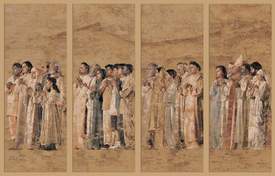
You may be curious to know the saints and blessed Pope Benedict references in Verbum Domini, or whose work he used.
The Pope said, "The interpretation of sacred Scripture would remain incomplete were it not to include listening to those who have truly lived the word of God: namely, the saints" (48).
And, "No sooner do I glance at the Gospel, but
immediately I breathe in the fragrance of the life of Jesus and I know where to
run. Every saint is like a ray of light streaming forth from the word of God..." (49).
Who are the saints?
Saint John the Evangelist
Saint Paul
Saint Bernard of Clairvaux
Saint Bonaventure
Saint Thomas Aquinas
Saint John of the Cross
Saint Irenaeus of Lyons
Saint John Chysostom
Saint Maximus the Confessor
Saint Gregory the Great
Saint Ambrose
Saint Augustine
Saint Anthony Abbot
Saint Basil the Great
Saint Benedict
Saint Athanasius
Saint Francis of Assisi
Saint Clare of Assisi
Saint Dominic
Saint Teresa of Avila
Saint Thérèse of the Child Jesus
Saint Ignatius of Loyola
Saint John Bosco
Saint John Mary Vianney
Saint Pius of Pietrelcina
Saint Josemaría Escrivá
Saint Teresa Benedicta of the Cross
Saints Gaetano Errico
Saint Maria Bernarda Bütler
Saint Alphonsa of the Immaculate Conception
Saint Narcisa de Jesús Martillo Morán
Saint Ignatius of Antioch
Saint Elizabeth
Blessed Jordan of Saxony
Blessed Teresa of Calcutta
Blessed Aloysius Stepinac
"Read the divine Scriptures frequently; indeed, the sacred book should never be out of your hands. Learn there what you must teach."
In the Apostolic Exhortation Verbum Domini released today, I immediately started reading the document for what the Pope had to say about lectio divina. You may recall the Pope's remarks for the 40th anniversary of Dei Verbum in 2005, he said lectio divina will bring about a spiritual springtime in Church. His words were:
"the diligent reading of Sacred Scripture accompanied by prayer brings about that intimate dialogue in which the person reading hears God who is speaking, and in praying, responds to him with trusting openness of heart (cf. Dei Verbum, 25). If it is effectively promoted, this practice will bring to the Church --I am convinced of it-- a new spiritual springtime."
No less than 16 times does His Holiness use the words lectio divina.
Here are some points of interest in Verbum Domini regarding lectio:
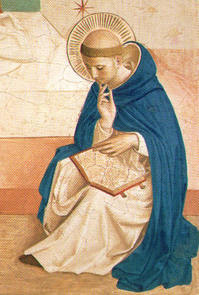 46. Listening together to the word of God, engaging in
biblical lectio divina, letting ourselves be struck by the
inexhaustible freshness of God's word which never grows old, overcoming our
deafness to those words that do not fit our own opinions or prejudices,
listening and studying within the communion of the believers of every age: all
these things represent a way of coming to unity in faith as a response to
hearing the word of God.
46. Listening together to the word of God, engaging in
biblical lectio divina, letting ourselves be struck by the
inexhaustible freshness of God's word which never grows old, overcoming our
deafness to those words that do not fit our own opinions or prejudices,
listening and studying within the communion of the believers of every age: all
these things represent a way of coming to unity in faith as a response to
hearing the word of God.
The Pope released his post-synodal Apostolic Exhortation, Verbum Domini, following the 2008 Synod of Bishops on the Word of God. It's available in eight languages in at least 200 pages.
Verbum Domini - English
Verbum Domini - Italiano
Verbum Domini - Español
The press conference:

At midday today in the Holy See Press Office, the presentation took place of the Post-Synodal Apostolic Exhortation "Verbum Domini" of Benedict XVI, on the Word of God in the life and mission of the Church.
Today's press conference was presented by Cardinal Marc Ouellet P.S.S., prefect of the Congregation for Bishops; Archbishop Gianfranco Ravasi, president of the Pontifical Council for Culture, and Archbishop Nikola Eterovic and Msgr. Fortunato Frizza, respectively secretary general and under secretary of the Synod of Bishops.
The Apostolic Exhortation, which is dated 30 September, Memorial of St. Jerome, is the fruit of the Twelfth Ordinary General Assembly of the Synod of Bishops, which was held in Rome from 5 to 26 October 2008. The document, which has been published in Latin, Italian, English, French, Spanish, German, Portuguese and Polish, is made up of an introduction, three parts and a conclusion.
Achbishop Eterovic explained how in part one, entitled "Verbum Dei", the Pope highlights both "the fundamental role of God the Father, source and origin of the Word", and "the Trinitarian dimension of revelation". Chapter one - "The God Who Speaks" - underscores "God's will to open and maintain a dialogue with man, in which God takes the initiative and reveals Himself in various ways". It also dwells on "the Christological aspect of the Word, while at the same time underlining the pneumatological dimension". This section of the document also focuses on the relationship between the Eucharist and Tradition, and on the theme of the inspiration and truth of the Bible.
"Our Response to the God Who Speaks" is the title of chapter two of part one. "Man is called to enter into the Alliance with his God, Who listens to him and responds to his questions. To God Who speaks, man responds with the faith. The most suitable prayer is that made using the words which were revealed by God and are conserved and written in the Bible", said Archbishop Eterovic.
Chapter three has as its title "The Interpretation of Sacred Scripture in the Church". The secretary general of the Synod of Bishops explained how "Sacred Scripture should be, as the Dogmatic Constitution 'Dei Verbum' says, 'the soul of sacred theology'. ... The biblical hermeneutics of Vatican Council II must be rediscovered, also in order to avoid a certain dualism evident in secularised interpretations which could give rise to a fundamentalist and spiritualist interpretation of Holy Scripture. Correct interpretation requires complementarity in a literal and spiritual sense, a harmony between faith and reason". This chapter also examines relations between Christians and Jews, noting that they enjoy "a very special relationship ... because they share a large part of the Scriptures".
Part two of the document is entitled "Verbum in Ecclesia". Chapter one - "The Word of God and the Church" - underlines how it is thanks to the Word of God and the effect of the Sacraments "that Jesus remains contemporary to mankind in the life of the Church", said the archbishop.
"The Liturgy, Privileged Setting for the Word of God" is the title of chapter two, in which the focus turns to "the vital link between Sacred Scripture and the Sacraments, especially the Eucharist". The importance of the Lectionary is mentioned, as is that of the proclamation of the Word and the ministry of reader, with particular emphasis being laid on the preparation of the homily, a theme of great importance in this Post-Synodal Apostolic Exhortation.
Chapter three of part two concerns "The Word of God in the Life of the Church" and highlights "the importance of biblical inspiration for pastoral activity, the biblical dimension of catechesis, the biblical formation of Christians, the use of Sacred Scripture in great ecclesial gahterings, and the Word of God in relation to vocations". Attention is also given to "lectio divina and Marian prayer", said the archbishop.
Part three of the document published today has as its title "Verbum Mundo". It draws attention to "the duty of Christians to announce the Word of God in the world in which they live and work". Chapter one - "The Church's Mission to Proclaim the Word of God to the World" - explains how the Church "is oriented towards the announcement 'ad gentes', to people who do not yet know the Word, ... but also to those who have already been baptised ... but need new evangelisation in order to rediscover the Word of God".
"The Word of God and Commitment to the World" is the title of chapter two, which recalls how "Christians are called to serve the Word of God in their most needy brothers and sisters and, hence, to commit themselves in society for reconciliation, justice and peace among peoples".
Chapter three of part three is dedicated to "The Word of God and Culture". It expresses the hope "that the Bible may become better known in schools and universities and that better use may be made of the social communications media, exploiting all the modern possibilities of technology. The theme of the inculturation of Sacred Scripture is also linked to the translation and diffusion of the Bible, which must be increased", said Archbishop Eterovic.
"The Word of God and Inter-religious Dialogue" is the title of chapter four. "Having established the value and topicality of inter-religious dialogue, 'Verbum Domini' ... supplies some important guidelines concerning dialogue between Christians and Muslims, and with members of other non-Christian religions, within the framework of a religious liberty which involves not only the freedom to profess one's faith in private and in public, but also freedom of conscience; in other words, of choosing one's religion".
In the
conclusion, Archbishop Eterovic concluded his explanations, the Holy Father
reiterates his exhortation to all Christians "to become increasingly
familiar with Sacred Scripture".
A distressing development has occurred with the canonization process for the Servant of God Archbishop Fulton J. Sheen has been suspended by the Bishop of Peoria, Daniel Jenky, CSC. The issue seems to be the refusal of the Archdiocese of New York to return the mortal remains of Sheen to his home diocese of Peoria; the archbishop died in 1979 at the age of 84, and was entombed in the crypt of the famed Cathedral of Saint Patrick. Earlier that year he met Pope John Paul II in Saint Patrick's Cathedral in a terrific embrace of brothers. The life and work of Archbishop Sheen might be likened to being a 20th century Saint Dominic of Guzman. After serving for three years (1966-69) as the Bishop of Rochester (NY), Fulton returned to New York City. The diocesan phase of the process was concluded in 2008.
Bishop Jenky's statement follows:
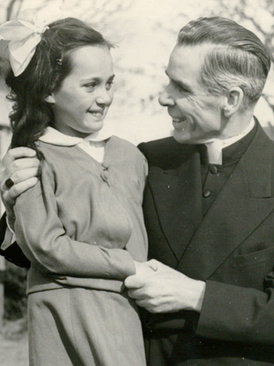 It is with great sadness and disappointment, Bishop Jenky announces that after nine years of effort and sacrifice, the Diocese of Peoria is suspending its efforts on behalf of the Beatification of Fulton J. Sheen. The Archdiocese of New York has made it clear that it is not likely that they will ever transfer the remains of Fulton J. Sheen to his home diocese of Peoria. The Bishop hopes that the Archdiocese of New York, in whose Cathedral crypt the earthly remains of the Servant of God are still entombed, might now assume this responsibility. In this endeavor he would pledge the cooperation of his diocese. The bishop urges the clergy, faithful and religious of Peoria to continue to pray for the Cause of Archbishop Sheen whose heroic virtues in announcing the Gospel and serving the poor were an extraordinary blessing in the life of the Catholic Church. The bishop would also like to remind all in his diocese and all those throughout the world who have so enthusiastically supported the Sheen Cause that finally it is only God who makes saints, not men.
It is with great sadness and disappointment, Bishop Jenky announces that after nine years of effort and sacrifice, the Diocese of Peoria is suspending its efforts on behalf of the Beatification of Fulton J. Sheen. The Archdiocese of New York has made it clear that it is not likely that they will ever transfer the remains of Fulton J. Sheen to his home diocese of Peoria. The Bishop hopes that the Archdiocese of New York, in whose Cathedral crypt the earthly remains of the Servant of God are still entombed, might now assume this responsibility. In this endeavor he would pledge the cooperation of his diocese. The bishop urges the clergy, faithful and religious of Peoria to continue to pray for the Cause of Archbishop Sheen whose heroic virtues in announcing the Gospel and serving the poor were an extraordinary blessing in the life of the Catholic Church. The bishop would also like to remind all in his diocese and all those throughout the world who have so enthusiastically supported the Sheen Cause that finally it is only God who makes saints, not men.
The Diocese of Peoria remains committed to promote the message of the great priest, Fulton J. Sheen within our Diocese and to continue to develop our museum and research center devoted to his life.
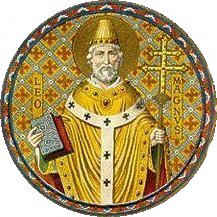 The Church offers us today the life of someone salvation history has determined to be a significant figure in the proclamation of the Gospel. Pope Saint Leo the Great, a doctor of the Church helped the Church of his era develop orthodox thinking on the person of Jesus Christ that is standard theology today. He defended the two natures of Jesus Christ at the Council of Chalcedon. The Fathers of Chalcedon said, "Peter has spoken through Leo!"
The Church offers us today the life of someone salvation history has determined to be a significant figure in the proclamation of the Gospel. Pope Saint Leo the Great, a doctor of the Church helped the Church of his era develop orthodox thinking on the person of Jesus Christ that is standard theology today. He defended the two natures of Jesus Christ at the Council of Chalcedon. The Fathers of Chalcedon said, "Peter has spoken through Leo!"A friend sent me this letter of His Beatitude, Patriarch Gregory III addressing the killing and violence inflicted on the Syrian Christian community on October 31 (there's discrepancy in the letter). His Beatitude is known for straight-talking and this letter indicates that sensibility. Let's pray for peace in all of our hearts and minds as we pray for our enemies.
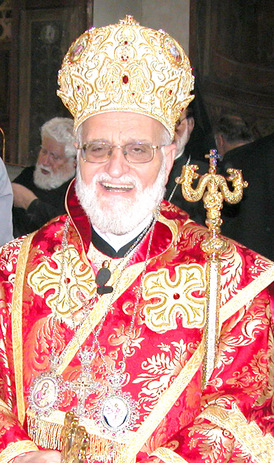
Rabweh, 8 November 2010
Christian bloodbath in the Cathedral of Our Lady of Deliverance, Baghdad
The carnage which took place on Sunday, November 1, 2010 in the Syrian Catholic Cathedral of our Lady of Deliverance in Baghdad was of an unprecedented cruelty and barbarity. It was an attack capable of undermining the good will of genuine bridge-builders between cultures, brave heroes of inter-religious dialogue, as well as the optimism of the Special Assembly of the Synod of Bishops for the Middle East.
I offer my sincere condolences and the assurance of my prayers and those of our Church to His Beatitude Patriarch Ignace-Joseph III (Younan), to His Eminence Cardinal Emmanuel III (Delly) and to all those who are broken-hearted at this crime.
We know that this criminal act is not the work of authentic Islam, and cannot be based on it. Despite that, we hold Muslims in Iraq and in all Arab countries to be responsible for Christian security, since they have power, and control the army and police force.
We urge Arab countries to study the reality of fundamentalist terrorism and the trends that feed on it. This is a global Islamic responsibility, because showing Islam under that guise is a disfigurement of authentic Islam. The real enemies of Islam and Muslims are neither "Islamophobia" nor "Christian Europe," but rather these fundamentalist organisations and trends.
They are also the enemies of Christianity and of every Christian and Muslim social and human value, whether Arab or not.
Christians are peaceable, patriotic, loyal, faithful to their homeland and countries, tolerant and naturally inclined to forgiveness. But they are not passive, cowardly, timid, any more than they are inclined to be humiliated. They are not sheep, designed to be slaughtered by fundamentalists. Christians are builders of values, nations and cultures, including Islamic culture itself.
If Muslims do nothing to safeguard this creative strain represented by Arab Christians in Iraq and throughout the Middle East, the prosperity and drive of Islamic culture will be in danger of collapse, and Muslims will then be their own worst enemies, enemies of their faith and of their countries.
Dear Muslim and Christian Arab brothers, let us adopt a unifying way of talking and act together to build a better future for all our children and compatriots!
Gregorios IIIPatriarch of Antioch and All the East of Alexandria and of Jerusalem
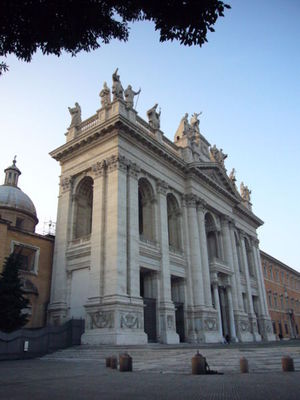 Jerusalem, city of God, you will shine with the light of God's splendor; all people on earth will pay you homage. Nations will come from afar, bearing gifts for the King of Heaven; in you they will worship the Lord. (the lamp-lighting antiphon from the Dedication of a Church)
Jerusalem, city of God, you will shine with the light of God's splendor; all people on earth will pay you homage. Nations will come from afar, bearing gifts for the King of Heaven; in you they will worship the Lord. (the lamp-lighting antiphon from the Dedication of a Church)
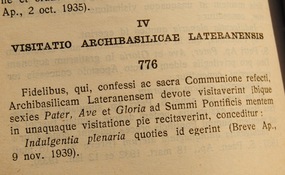 Pope Benedict said it well in his 2008 Angelus Address for this feast: "Dear Friends, today's feast celebrates a mystery that is always relevant: God's desire to build a spiritual temple in the world, a community that worships him in spirit and truth (cf. John 4:23-4). But this observance also reminds us of the importance of the material buildings in which the community gathers to celebrate the praises of God. Every community therefore has the duty to take special care of its own sacred buildings, which are a precious religious and historical patrimony. For this call upon the intercession of Mary Most Holy, that she help us to become, like her, the 'house of God,' living temple of love."
Pope Benedict said it well in his 2008 Angelus Address for this feast: "Dear Friends, today's feast celebrates a mystery that is always relevant: God's desire to build a spiritual temple in the world, a community that worships him in spirit and truth (cf. John 4:23-4). But this observance also reminds us of the importance of the material buildings in which the community gathers to celebrate the praises of God. Every community therefore has the duty to take special care of its own sacred buildings, which are a precious religious and historical patrimony. For this call upon the intercession of Mary Most Holy, that she help us to become, like her, the 'house of God,' living temple of love."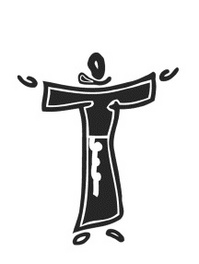
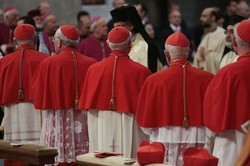 Anna Arco's article online at the Catholic Herald (of the UK fame) reports that before the consistory of cardinals on November 20, during which the Pope will create 24 new cardinals there will be prayer, reflection and conversation about a number of things but three key topics will be the 10th anniversary of Dominus Iesus, sex abuse crisis and the Ordinariate for Anglicans who desire to enter into full communion the Catholic Church. Other issues to be discussed, but no less crucial to the life of the Church, are religious liberty and the sacred Liturgy.
Anna Arco's article online at the Catholic Herald (of the UK fame) reports that before the consistory of cardinals on November 20, during which the Pope will create 24 new cardinals there will be prayer, reflection and conversation about a number of things but three key topics will be the 10th anniversary of Dominus Iesus, sex abuse crisis and the Ordinariate for Anglicans who desire to enter into full communion the Catholic Church. Other issues to be discussed, but no less crucial to the life of the Church, are religious liberty and the sacred Liturgy.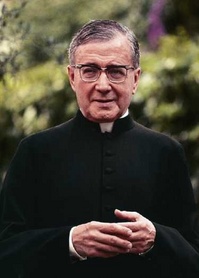 The Pope advocated knowing the lives of the saints as a way of coming to know Christ, and to know how to live one's baptism. This video of Saint Josemaría Escrivá gives an excellent introduction to the life of a 20th century saint and founder of the lay movement of Opus Dei.
The Pope advocated knowing the lives of the saints as a way of coming to know Christ, and to know how to live one's baptism. This video of Saint Josemaría Escrivá gives an excellent introduction to the life of a 20th century saint and founder of the lay movement of Opus Dei."Here there is no longer anything but God. He is All; He suffices and we live by Him alone" (Letter 91).
Today is the feast of the Blessed Elizabeth of the Trinity (1880-1906), one of those mature Carmelite mystics who forcefully brings us back to center.
She reminds us that the most Holy Trinity is given to each person at the time of Baptism and again in Confirmation and fed through the Eucharist.
She once wrote, "It seems to me that I found my heaven on earth, since heaven is God and God is in my soul. The day I understood that, everything became clear to me. I wish to tell this secret to those whom I love so that they also, through everything, may also cling to God ..." (Letter 122).
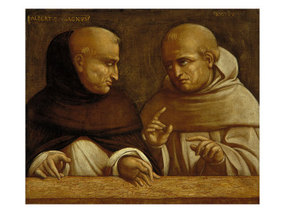
Crossroads Cultural Center
p r e s e n t s
FAITH IN RUSSIA TODAY
A Conversation with
the Most Reverend Paolo Pezzi, FSCB
Archbishop of Mother of God in Moscow
In cooperation with Radius, and Communion and Liberation
Date: Wednesday, November 17,
2010
Time: 7:30 pm
Location: Pryzbyla Center, Great
Room
The Catholic University of
America
620 Michigan Ave., NE,
Washington, DC 20064
Metro: Red Line, Brookland/CUA
The conference is free and
open to the public
Humor and Catholicism are not easily cohered by many people. For some reason, many people believe that to be a Catholic, a saint, a person "in-tune" with God means, by definition, to look unhappy, if not really be, unhappy. Yea, but no. Really, the contrary is true if you know God, His Son and sacred Scripture. To have a healthy, vibrant spiritual life is have joy. We hunger for intimate connections with God, others and self. We are made for love and joy. Yet, love and joy are mysteries in the Providence, and love and joy separates us from the animals, as does freedom. And to love is be full of joy, full of humor and delight.

Tonight, I had the pleasure of seeing an old and dear friend, Jesuit Father James Martin, speak at Yale University's St Thomas More Catholic Chapel. Nearly hundred people were in attendance including members of the local and Yale communities. Father Martin is the Cultural editor of America Magazine, the only Catholic weekly journal of opinion. He's the author of a plentitude of articles and several books (My Life with the Saints & The Jesuit Guide to (Almost) Everything, and he's due to publish yet another book, Sarah's Laugh: Joy Humor and Laughter in the Spiritual Life, in a few months.

Martin was invited by More House to deliver the More House Lecture, which since its establishment in 1962 has had a few distinguished Jesuits. The inaugural More House Lecturer was given by Father John Courtney Murray, SJ in 1962 on the topic of the Problem of God. Martin is now on a spry list of notable --and a few ignoble-- scholars and cultural types. A terrific honor, indeed.
Father Martin's point is that joy and laughter are under-rated in the spiritual life and are essential for a healthy physical and spiritual life. To be joyful is to be in-touch with God. Joy equals holiness (for those who pray).
While humor is culturally bound in time, place and location, there is evidence that laughter had some importance among the Old Testement characters, think of Abraham and Sarah, Isaiah and in the New Testament with Jesus, think of his interchange with Nathaniel. Saints had a particular bias for humor and joy and laughter, think of Saints Teresa of Avila, Philip Neri, Benedict, Blessed John XXIII and Teresa of Calcutta, and countless others.

Father Martin had ten points in praise of humor and its intimate connection with the spiritual life:
- humor evangelizes; humor shows others our faith in God, in the resurrection of Jesus from the dead; humor shows the victory of love over hatred;
- humor is a tool for humility; it aids in the quest of humility; humor is a great way to keep one grounded and away from the Deadly Sin of pride; as my mother says frequently, don't take yourself that seriously;
- humor shocks the hearer to hear something new; humor gets the point of across
- humor speaks truth to power, especially when other forms of truth-telling seem to fail; do we need more pompous, puffed-up and powerful people with a distinct lack of humor leading us, in Church and in society?
- humor shows Christian courage: think of Saints Lawrence and Thomas More;
- humor deepens a relationship with God (if you have one); by analogy --Catholics love theological analogies: being in relationship with God is like being on the phone--someone talks and someone listens; a healthy relationship with God would mean that joy is very much a part of one's relationship with God; as Father Martin pointed out from the Ignatian spirituality point of view, can I imagine that God might want to be playful with me? Can I delight in God's desire for giving me the unexpected? Can I, like the Prophet Isaiah, allow God to delight in me and I delight in God?
- humor shows genuine hospitality, it shows the other that being welcome in a place is a virtue;
- humor is healing --it releases endorphins; one never laughs at sin or personal hurt but in its proper place humor gives us a break;
- humor opens our minds --it helps us to relax; humor helps get the message across, eases the burdens and allows us to imagine being personally with Jesus; joy is the surest sign of the Holy Spirit;
- humor is fun and fun is a foretaste of heaven.
Thanks be to God for the grace of laughing. John Paul II and Benedict XVI have also showed us the value and place of humor in life. As I have said before here: can I really take my humanity seriously? Can I be joy-filled? Can I allow God to show me the way to Him through humor?
There's no doubt that Christians in Iraq are facing the significant trails of their lifetime. These are our brothers and sisters. Some call it a jihad against the Christian minority and others say this is an example of a more globalized efforts to squeeze out Christianity in the Middle East. The horrific attack is religiously motivated driving the Christians from the region, an ethnic cleansing. Multiple religious groups in Iraq create diversity, it creates democratic processes, no matter the size of the community.
The Islamists as a group is small, perhaps not more than 5% but they have money and are mobilized. But where is the outrage of the Islamic leaders of the reasonable sort speaking against these attacks? Barely is the media reportiing on last Sunday's events.
Vatican Radio reported that "The victims of Sunday's massacre in Our Lady of Salvation Church Baghdad were laid to rest Tuesday. A telegram from Pope Benedict to the leader of the Syro-Catholic Church in the Iraqi capital, Archbishop Athanase Matti Shaba Matoka, was read out to mourners during the funeral service. The Pope said 'deeply moved by the violent death of so many faithful and their priests, Tha'ir Saad and Boutros Wasim, I wish, during the sacred funeral rite, to share spiritually in this occasion and pray that these our brothers and sisters are welcomed by the mercy of Christ into the Father's House.for years this country has been suffering untold hardships and even Christians have become the subject of brutal attacks that, in total disregard of life - an inviolable gift from God - want to undermine confidence and peace. I renew my call that the sacrifice of our brothers and sisters may be the seed of peace and true rebirth, and that those who care about reconciliation, solidarity and fraternal coexistence, find the strength and motivation to do good.'"
Additionally, Asia News reported, "The so-called 'War Department' of the 'Islamic State of Iraq' (ISI) al-Qaeda in Iraq issued a statement on the Web to announce that the passing of the deadline of its 'ultimatum' to the Egyptian Coptic Church to release two Egyptian women, Camilia Cheh and Wafa Constantine, wives of Coptic priests, whom according to the terrorists are detained against their will in a convent after converting to Islam. Their conversion has been denied by all the Islamic religious authorities in Egypt, and the Muslim Brotherhood have harshly attacked the authors of the massacre in Baghdad. Al-Qaeda, however, confirms that all Christians and their churches have become "legitimate targets" of the terrorist group and are therefore are in danger. The message issued today by the Iraqi cell of al-Qaeda also makes explicit reference to the Vatican."
Further, "While confirming its desire to attack the Christians, the terrorists say they want to give one more chance to the Catholics of the Church of Rome. They claim that 'the War Office of the Islamic State of Iraq' announced that starting today all the churches and Christian organizations and their leaders are a legitimate target for mujahedeen. These politicians and their bosses in the Vatican should know that the sword will not fall on the heads of their followers if they proclaim their innocence, and distance themselves from what has been done by the Egyptian Church. Al-Qaeda calls on Catholics to 'send a clear signal to the mujahedeen of their effort to put pressure on the Egyptian Church in order to obtain the release of two women, their prisoners.'"
Martin Chulov of the Guardian in Britain, wrote "Resurgent al-Qaida threatens Christians in Iraq with 'destruction": "Al-Qaida in Iraq has threatened more attacks on Iraq's Christians, claiming that they are legitimate targets who now face the 'doors of destruction.' The warning, published today on militant websites, came three days after gunmen from an al-Qaida front group, the Islamic State of Iraq, raided one of Baghdad's main cathedrals during Sunday mass. More than 50 people were killed and dozens were wounded when Iraqi forces stormed the church in an attempt to lift the four-hour siege. In its statement, ISI described the pope as 'the hallucinating tyrant of the Vatican' and warned that Christians would be 'extirpated and dispersed' from Iraq. 'All Christian centers, organizations and institutions, leaders and followers, are legitimate targets for the muhajideen wherever they can reach them... We will open upon them the doors of destruction and rivers of blood.'"
Pope Benedict XVI responded to a cross section of Italian Catholic Action, on Saturday, October 31. Reportedly, there were 50,000 children, 30,000 youth and 10,000 educators of Catholic Action, who were in Rome meeting under the theme: "There Is More. We Become Great Together." WOW!!!! The Pope really takes humanity seriously; he really understands me and my desires and my limitations. One of the Q&A that I liked is the following:
Your Holiness, our teachers in Catholic Action tell us that to grow up it is necessary to learn to love, but often we fail and we suffer in our relationships, in our friendships, in our first loves. But what does it mean to love totally? How can we learn to love truly?
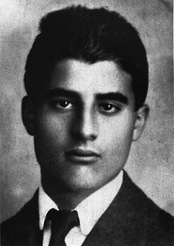
Benedict XVI: A great question. It is very important, I would say fundamental, to learn to love, truly to love, to learn the art of real love! In adolescence we stop before the mirror and we notice that we are changing. But if you continue to look at yourself, you will never grow up! You grow up when you do no longer let the mirror be the only truth about you but when you let your friends tell you. You will grow up if you are able to make your life a gift to others, not to seek yourselves, but to give yourselves to others: this is the school of love. This love, however, must bring you into that "more" that today shout to everyone. "There is more!" As I have already said, I too, in my youth wanted something more than what the society and the mentality of the time presented to me. I wanted to breathe pure air, above all I desired a beautiful and good world, like our God, the Father of Jesus, wanted for everyone. And I understood more and more that the world becomes beautiful and good if one knows this will of God and if the world corresponds to this will of God, which is the true light, beauty, love that gives the world meaning.
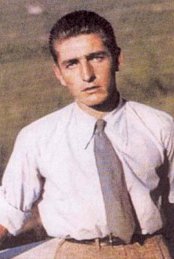
It is quite true: You cannot and must not adapt yourselves to a love reduced to a commodity to be consumed without respect for oneself or for others, incapable of chastity and purity. This is not freedom. Much of the "love" that is proposed by the media, on the internet, is not love but egoism, closure, it gives you the illusion of a moment, but it does not make you happy, it does not make you grow up, it binds you like a chain that suffocates more beautiful thoughts and sentiments, the true desires of the heart, that irrepressible power that is love and that has its maximum expression in Jesus and strength and fire in the Holy Spirit, who enflames your lives, your thoughts, your affections. Of course it demands sacrifice to live love in the true way -- without renunciation one does not find this road -- but I am certain that you are not afraid of the toil of a challenging and authentic love. It is the only kind that, in the final analysis, gives true joy! There is a test that tells you whether your love is growing in a healthy way: If you do not exclude others from your life, above all your friends who are suffering and alone, people in difficulty, and if you open your heart to the great friend Jesus.
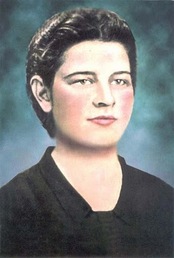
Catholic Action also teaches you the roads to take to learn authentic love: participation in the life of the Church, of your Christian community, loving your friends in the Children's Catholic Action group, in Catholic Action, availability to those of your age at school, in the parish or in other environments, the company of the Mother of Jesus, Mary, who knows how to guide your heart and lead you along the way of good. Moreover, in Catholic Action, you have many examples of genuine, beautiful, true love: Blessed Pier Giorgio Frassati, Blessed Alberto Marvelli; love that also leads to the sacrifice of one's life, like with Blessed Pierina Morosini and Blessed Antonia Mesina.
Young people of Catholic Action, aspire to big goals, because God gives you the strength. "More" is being young people and children who decide to love like Jesus does, to be the protagonists of our own lives, protagonists in the Church, witnesses of the faith to those who are your age. "More" is the
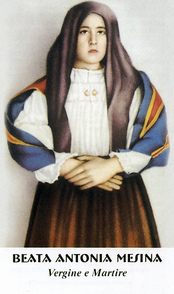 human and Christian formation that
you experience in Catholic Action, which unites spiritual life, fraternity,
public witness to the faith, ecclesial communion, love for the Church,
collaboration with the bishops and priests, spiritual friendship. "Growing
up together" speaks of the importance of being part of a group and a
community that helps you to grow, to discover your vocation and to learn true love.
Thank you.
human and Christian formation that
you experience in Catholic Action, which unites spiritual life, fraternity,
public witness to the faith, ecclesial communion, love for the Church,
collaboration with the bishops and priests, spiritual friendship. "Growing
up together" speaks of the importance of being part of a group and a
community that helps you to grow, to discover your vocation and to learn true love.
Thank you.
The Pope celebrated Mass for the bishops and cardinals who died in the past year on Wednesday. In his homily he addressed what I believe --and the Church has consistently taught-- are central themes of our Catholic faith which are too often misunderstood or not understood enough. The last line of this post is THE most important thought for us to contemplate on today. From the Vatican's Press Office we read:

The Pope remind his congregation that "eternal life" designates "the divine gift granted to humankind; i.e., communion with God in this world and its fullness in the next. Eternal life was opened to us by Christ's Paschal Mystery and faith is the way to attain it". Referring then to Jesus' conversation with Nicodemus, as recounted in today's Gospel, the Pope explained how in this exchange Jesus "reveals the most profound meaning of the event of salvation: ... The Son of man must be raised on the wood of the cross so that those who believe in Him might have life. ... The cross, paradoxically, from being a sign of condemnation, death and failure, becomes a sign of redemption, life and victory in which, with the eyes of faith, we can see the fruits of salvation."
The salvific significance of the cross
"consists in the immense love of God and in the gift of His only-begotten
Son. ... The verbs 'to love' and 'to give' indicate a decisive and definitive
action expressing the radical way in which God approached man in love, even
unto the total giving of self, ... lowering Himself into the abyss of our utter
abandonment, and crossing the portal of death. The object and beneficiary of
divine Love is the world, in other words humanity. This completely cancels the
idea of a distant God divorced from man's journey, and reveals His true
face." God "loves without measure. He does not show His omnipotence
in punishment, but in mercy and forgiveness."
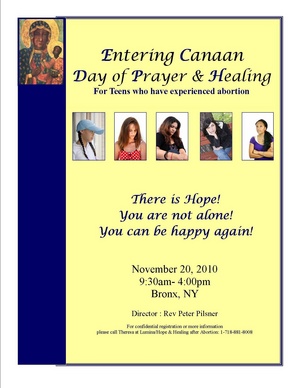
Many of you are in parishes with schools and/or youth groups
and have teens who are suffering from the effects of abortion. Please promote this
unique opportunity for them to come to a Day of Prayer and Healing for Teens -
November 20th.
For confidential registration or more information, please call Theresa at Lumina Hope and Healing after Abortion at 718-881-8008 and visit the Lumina website.
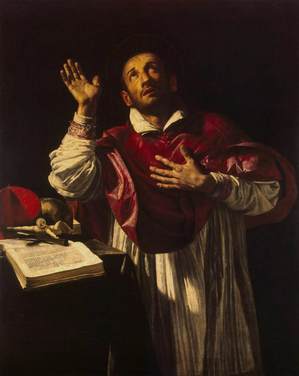
Saint Charles Borromeo's intercession is as much needed today as ever we needed it. He was an unexpected gift of God to his family and to the Church and we ask him to intercede for us. Some interesting points about the legacy of Saint Charles Borromeo, whose feast we celebrate today.
- His nephew, Federico Borromeo (1564-1631), was archbishop of Milan from 1595 and, furthering Charles' support for Catholic learning, in 1609 founded the Ambrosian Library in that city. He donated a tremendous collection of art and literature to the library.
- Borromeo's emblem is the Latin word humilitas (humility), which is a portion of the Borromeo shield. He is usually represented in art in his robes, barefoot, carrying the cross as archbishop; a rope round his neck, one hand raised in blessing, thus recalling his work during the plague.
- Borromeo is one of only four people mentioned at the beginning of the Catechism of the Catholic Church, citing them as responsible for the Council of Trent, which gave way to the modern day catechism. The others mentioned are St. Peter Canisius, St. Turibius of Mongrovejo and St. Robert Bellarmine.
- The city and county of St. Charles, Missouri are named for Borromeo.
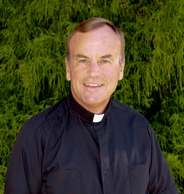 At this moment, family, friends, and Jesuits are gathering for the Mass of Christian Burial for the Reverend Father Allen P. Novotny, SJ, 58, President of Gonzaga College High School, Washington, DC. I mention this because I had the privilege of living with Allen for a year and liked him very much. I've been saddened since hearing the news on October 27th that Allen died earlier that day from a mutual friend. I was unable to make the funeral Mass but have not ceased praying for Allen's peace and God's mercy upon Allen and the rest of us. Eternal rest, dear friend.
At this moment, family, friends, and Jesuits are gathering for the Mass of Christian Burial for the Reverend Father Allen P. Novotny, SJ, 58, President of Gonzaga College High School, Washington, DC. I mention this because I had the privilege of living with Allen for a year and liked him very much. I've been saddened since hearing the news on October 27th that Allen died earlier that day from a mutual friend. I was unable to make the funeral Mass but have not ceased praying for Allen's peace and God's mercy upon Allen and the rest of us. Eternal rest, dear friend.
Not long ago a friend asked me why Catholics don't celebrate the Jewish holy days. Good question.
A response to the question as to why we don't celebrate the Jewish holy days would be along these lines: the Paschal Triduum is the Christian Passover, the true Pasch. Even the Greek and Latin name for Easter tells us that (as also the derivation of the name for Easter in Spanish, French, Italian from the same root).
In one sense, Jesus' teaching was in continuity with Judaism (Mt 5.17: "Think not that I have come to abolish the Law"); but he also in Matthew 5 puts himself forward as a higher Lawgiver than Moses ("you have heard it said, but I tell you..."). I suggest reading Rabbi Jacob Neusner's book, A Rabbi Talks with Jesus, which makes this point very clear. The Pope himself said in Jesus of Nazareth that Neusner's book is an excellent example of honest and reasoned argument between a believing Jew and the Jesus of the gospels.
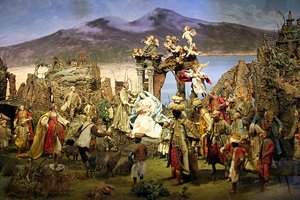
If the crèche at the Abbey of Regina Laudis strikes you as a little out place, there's a good reason. The austere Yankee barn that houses it is a world away from its previous home. Handcrafted by artisans in Naples, the intricate nativity scene was presented as a coronation gift to Victor Amadeus II, king of Sardina, in 1720. It remained among Italian nobility until it was purchased by Loretta Hines Howard, an artist and collector, in 1949. She immediately donated it to what was then a fledgling Benedictine Abbey in, fittingly, Bethlehem, Connecticut (although the nuns insist the name is a coincidence).
The crèche takes a few liberties with the traditional nativity story. Instead of a Judean village, Bethlehem appears here somewhere on the coast of Italy. The stable has been replaced by Corinthian columns, and the traditional kings and shepherds are joined by a whole host of other characters, who have shed their New Testament robes for 18th-century knickers and coats. In one corner, some peasants argue over the contents of a stem pot. In another, a noblewoman walks her whippet on a leash. The crowd is puzzling at first, though it may serve a distinct purpose. "For as many people as there are, there are attitudes toward the birth of Christ," says Sister Angèle Arbib, who helps care for the crèche. She points out some figures who seems reverential, others who seem distracted or dis-believing: "It's so representative. When people come here to see the crèche, they identify with someone in here."
And people of all faiths do come to see it. The mass of Christmas pilgrims has returned after a recent restoration had taken the crèche out of public view for three years. Conservators from New York's Metropolitan Museum of Art painstakingly repaired each of the 68 figures and the tiny hand-sewn outfits they wear. The results are stunning. The crèche now stands as a testament to the continued support of the community of nuns, preservationists, and believers that has formed around it. It's fitting. After all, what is a nativity other than a story of people coming together?
November/December, Vol. 74, No. 6.
Abbey of Regina Laudis273 Flanders Road
Bethlehem, CT
The crèche is open to the public daily 10-4 through Jan. 5 (closed Jan. 6-Apr. 24)
203.266.7727
Since Sunday how could our hearts not be moved by the dirty killing of 58 and wounding of countless others in Our Lady of Salvation Church (a Syrian Catholic Church in Baghdad)? How could we not have heavy hearts and mournful spirits at the news of villainous actions toward others, especially those at prayer? Our brothers and sisters in the faith, among them 2 priests --who brought Christ to us-- were bruttally murdered by Muslim extremists.
We pray for the eternal rest of the dead, healing of the ill and forgiveness of the perpetrators. That's what the Lord would do, I am convinced. This is what we are asked to do by the Pope. Indeed, we pray for peace and re-birth in Christ.
Let's pray for Chaldean Cardinal and Patriarch Emmanuel III Delly, the other bishops of Iraq with the priests, deacons, sub-deacons and laity.
The Holy Father has spoken out in the last days and he does so again. Read his remarks here.
Just back from Mass for the Faithful Departed and from voting.
Have you prayed and voted???
Catholics vote because it is "... for the promotion of the common good" (Benedict XVI)
Voting is a "... serious moral obligation..." and Catholics "... can never vote for someone who favors absolutely what's called the 'right to choice'" (Abp R. Burke)
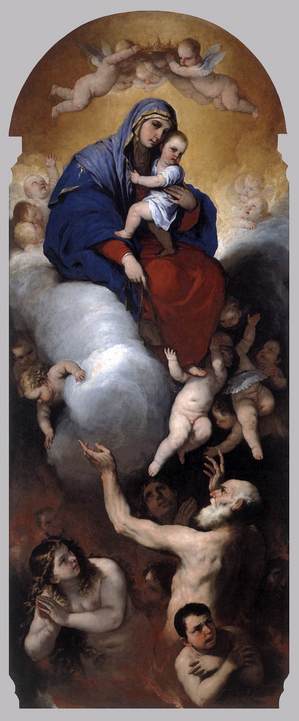
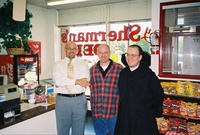 The following homily was delivered yesterday for the 31st Sunday Through the Year at the Abbey of Saint Mary and Saint Louis by a dear friend, R. Dom Ambrose Bennett, STL. Dom Ambrose (on the right in the photo) is a priest, monk and teacher at the Abbey.
The following homily was delivered yesterday for the 31st Sunday Through the Year at the Abbey of Saint Mary and Saint Louis by a dear friend, R. Dom Ambrose Bennett, STL. Dom Ambrose (on the right in the photo) is a priest, monk and teacher at the Abbey. If you've not seen the Grassroots film documenting 2 young men's interrogation of life in the film "The Human Experience," then I would say you've missed a great opportunity to think about the reality with which we are confronted with daily.
If you've not seen the Grassroots film documenting 2 young men's interrogation of life in the film "The Human Experience," then I would say you've missed a great opportunity to think about the reality with which we are confronted with daily.Catholics in Our Lady of Salvation Church in Baghdad were held hostage and some killed and wounded by a group of Al Qaeda militants. The siege tragically ended in death when Iraqi security forces raided the church in order to free the faithful being held inside.
During his All Saints Angelus address today in Rome, Pope Benedict said, "Last night, in a very serious attack on the Syrian Catholic Cathedral in Baghdad, dozens of people were killed and wounded, including two priests and a group of faithful gathered for Sunday Mass."
Benedict continued, "I pray for the victims of this senseless violence, all the more ferocious as it affected defenseless civilians, this closeness to the martyred Christian community, targeted yet again by terrorists, and encouraged all pastors and faithful to be strong and firm in hope."
"Faced with the brutal violence that
continues to tear the peoples of the Middle East apart," Pope Benedict ended the Angelus talk by saying: "I renew
my appeal for peace: it is God's gift, but it is also the result of the efforts
of men of good will, national and international institutions. We must all join
forces to ensure an end to all violence!"
Today is the day since the time of Pope Gregory III that the Church has observed a day for all the saints ever recognized officially, and for those who are in the process of becoming listed saints in the martyrology, and certainly all those holy men and women who ever lived. Looking at the Roman Martyrology, the book that contains all the saints of the Church, but it doesn't list the all the Baptized. Hence, our feast day. There is a great dynamic of love that we observe today, but it should be a dynamic that we live every day of our lives. How many people, holy men and women have we known who touched out lives in great and small ways. I think of the various priests, and laity who promised to pray for me.
During his September visit to England, Pope Benedict boldly asked the young (indeed, all of us) to consider becoming saints and not to settle for something less than what we are made for. The value here, if you want to speak in this way, is that holiness is not for plastic people, people who have no sense of relationships, no concept of community, no understanding of the value of good friends. Holiness means taking ourselves seriously as loved people and worthy of friendship with the Lord and with another person; holiness is means setting aside distractions, sinful tendencies and the lack of attentiveness of God and what Jesus did for us. That is, Jesus' death and resurrection for love of us personally. It's taken me a long time to understand this point, and what the Pope has invited to, but there is solid, reliable truth in that God alone satisfies me. Which means, other things and mediocre relationships do not. Here is a portion of his homily:
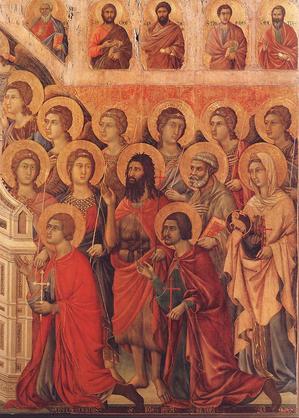
What God wants most of all for each one of you is that you should become holy. He loves you much more than you could ever begin to imagine, and he wants the very best for you. And by far the best thing for you is to grow in holiness.
Perhaps some of you have never thought about this before. Perhaps some of you think being a saint is not for you. Let me explain what I mean. When we are young, we can usually think of people that we look up to, people we admire, people we want to be like. It could be someone we meet in our daily lives that we hold in great esteem. Or it could be someone famous. We live in a celebrity culture, and young people are often encouraged to model themselves on figures from the world of sport or entertainment. My question for you is this: what are the qualities you see in others that you would most like to have yourselves? What kind of person would you really like to be?
When I invite you to become saints, I am asking you not to be content with second best. I am asking you not to pursue one limited goal and ignore all the others. Having money makes it possible to be generous and to do good in the world, but on its own, it is not enough to make us happy. Being highly skilled in some activity or profession is good, but it will not satisfy us unless we aim for something greater still. It might make us famous, but it will not make us happy. Happiness is something we all want, but one of the great tragedies in this world is that so many people never find it, because they look for it in the wrong places. The key to it is very simple - true happiness is to be found in God. We need to have the courage to place our deepest hopes in God alone, not in money, in a career, in worldly success, or in our relationships with others, but in God. Only he can satisfy the deepest needs of our hearts.
Pope Benedict XVIGreeting to Catholic Pupils of the United Kingdom
St Mary's College, Twickenham
17 September 2010
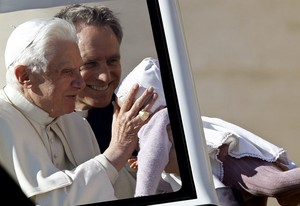 You & me, all Christians and people of good will ought to have a habit of prayer, of turning to God because prayer has the effect of naturalizing and lifting the soul beyond the temporal. Join me in praying for these two intentions given by the Pope to us when we turn to God.
You & me, all Christians and people of good will ought to have a habit of prayer, of turning to God because prayer has the effect of naturalizing and lifting the soul beyond the temporal. Join me in praying for these two intentions given by the Pope to us when we turn to God.